Special Report
Here’s How Important the Iowa Caucuses Were in Every Election
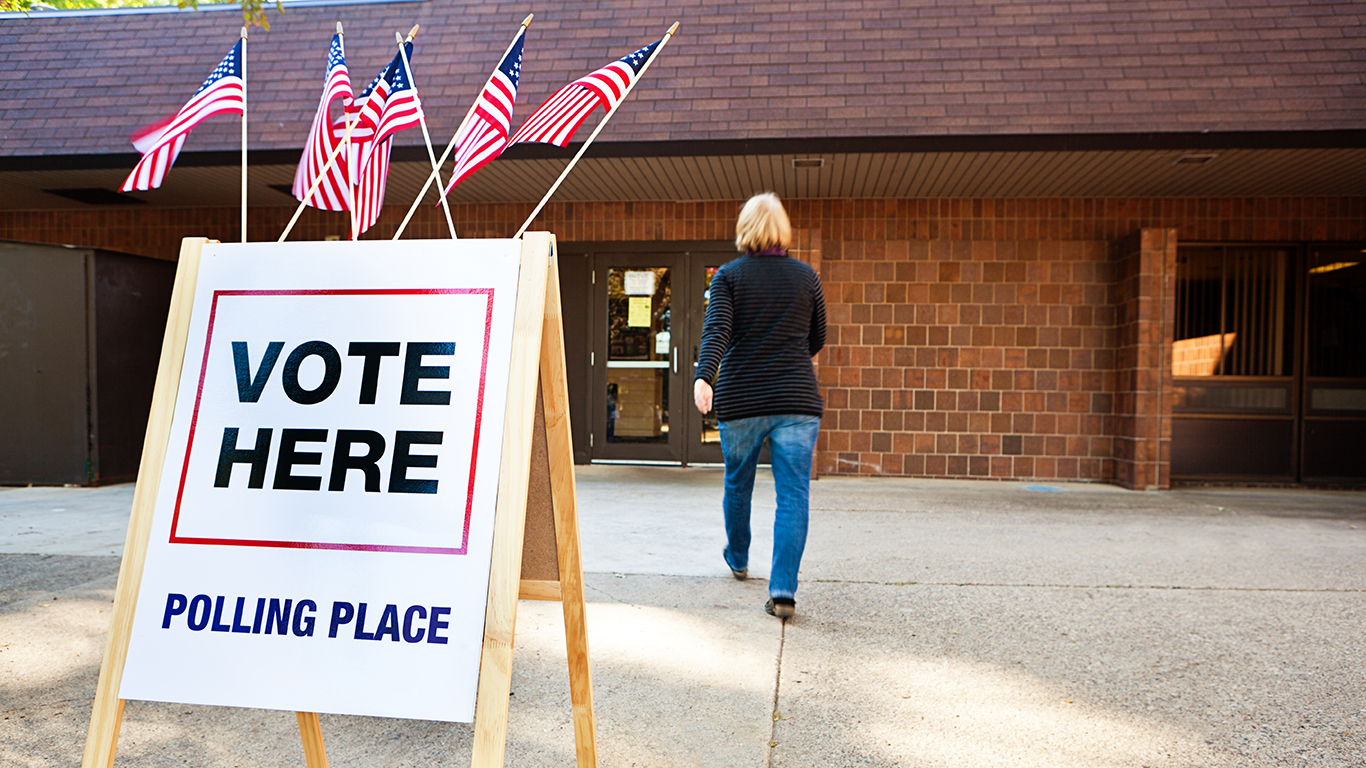
Published:

As the first major contest in the U.S. presidential election process, the Iowa caucuses are considered very important. Since the first Iowa caucuses were held in 1972, the winner of nine of the 18 Iowa caucuses held by both parties eventually won the nomination.
However, while the caucuses tend to be good predictors of who will win each party’s nomination, they are poor predictors of who will win the presidency. Only three presidential candidates who won the Iowa caucuses went on to become president — George W. Bush, Jimmy Carter, and Barack Obama. Here is each president’s path to the oval office.
Just how important are the Iowa caucuses? To answer this question, 24/7 Wall St. reviewed each primary season’s top three candidates in the Democratic and Republican Iowa caucuses since 1972 (the first year of the Democratic caucuses), and 1976 (the first year of the Republican caucuses). We relied on data compiled by the Des Moines Register, a central Iowa newspaper owned by media and marketing company Gannett.
Because some incumbent presidents ran uncontested, the following caucuses were excluded from our list: 1984, 1992, 1996, 2004, and 2012; In these years, Ronald Reagan, George H.W. Bush, Bill Clinton, George W. Bush, and Barack Obama ran uncontested as their party’s nominee. Incumbent presidents Gerald Ford and Jimmy Carter were challenged in primaries by Ronald Reagan in 1976 and Edward Kennedy in 1980, respectively.
Uncommitted voter blocs, which are common in Iowa caucuses, were included on our list. In several cases, more delegates were undecided than were committed to any individual candidate.
Click here to see how much the Iowa caucuses matters to every Democratic presidential candidate
Click here to see how much the Iowa caucuses matters to every Republican presidential candidate

[in-text-ad]
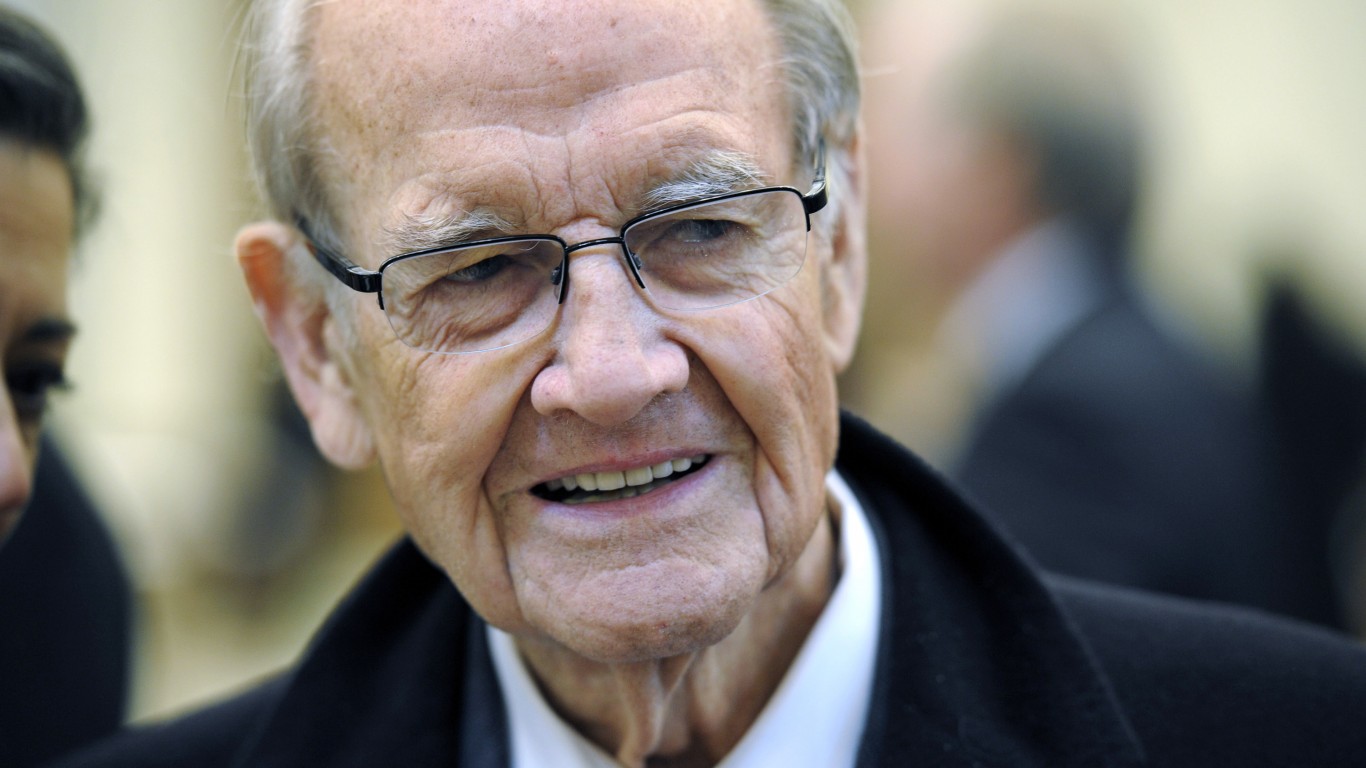
George McGovern
> IA Caucus vote: 22.6%
As the first contest in the U.S. presidential election process, the Iowa caucuses are very important. But while the caucuses are in general strong predictors of who will be a party’s nominee, they are poor predictors of who will be elected president. This was not the case in 1972, the first year of the Iowa caucuses. George McGovern, who lost the Iowa vote to Edmund Muskie by a wide margin, eventually won the Democratic Party nomination. In the general election he lost to Richard Nixon, the Republican incumbent president.

Edmund Muskie
> IA Caucus vote: 35.5%
Sen. Edmund Muskie from Maine received the highest percentage of the Iowa caucuses vote. He would go on to narrowly win the New Hampshire primary. However, George McGovern, a senator from South Dakota, would eventually win the Democratic nomination.
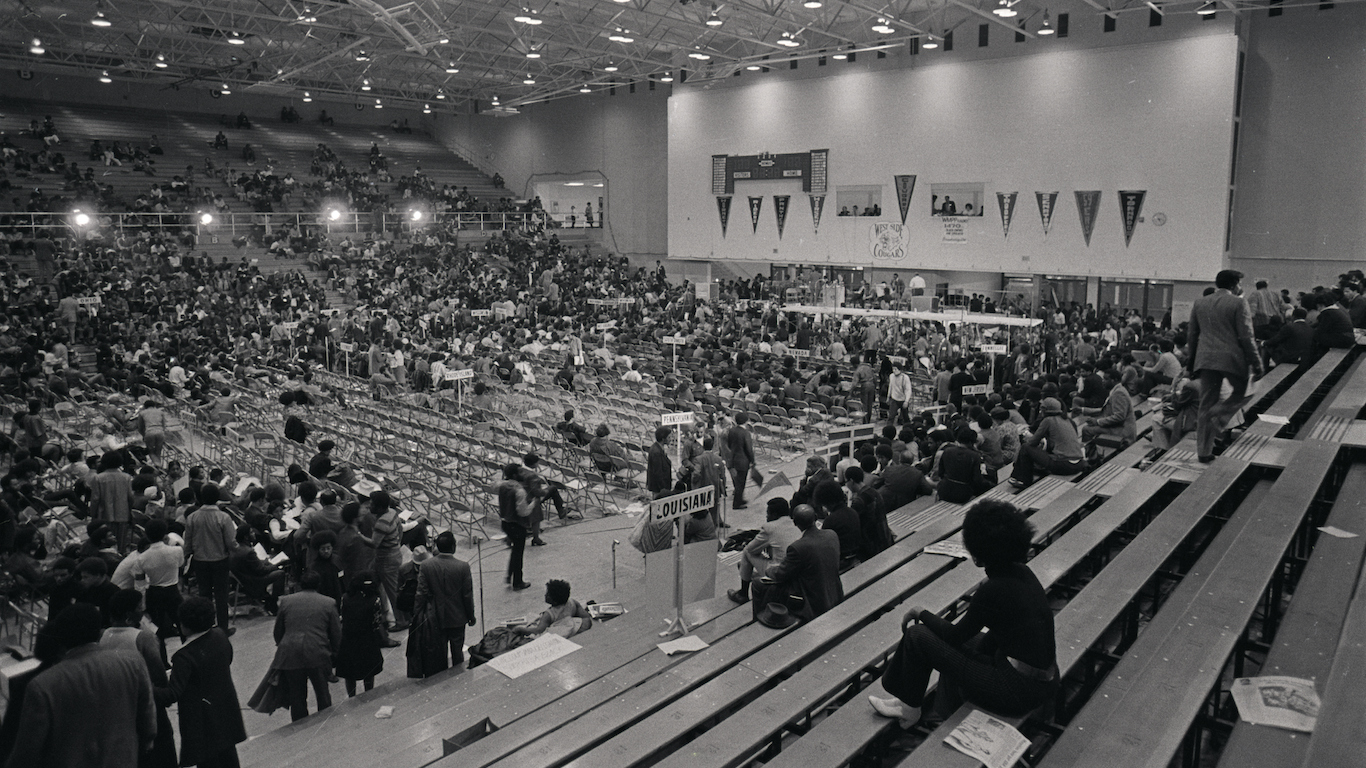
Uncommitted
> IA Caucus vote: 35.8%
Edmund Muskie’s share of the Iowa vote was the largest of all the Democratic presidential candidates in 1972. Uncommitted delegates, however, represented a slightly larger share, 35.8% of Iowa’s delegates. 1972 was one of only two primary elections in which uncommitted delegates in the Iowa caucuses comprised the largest voting bloc.

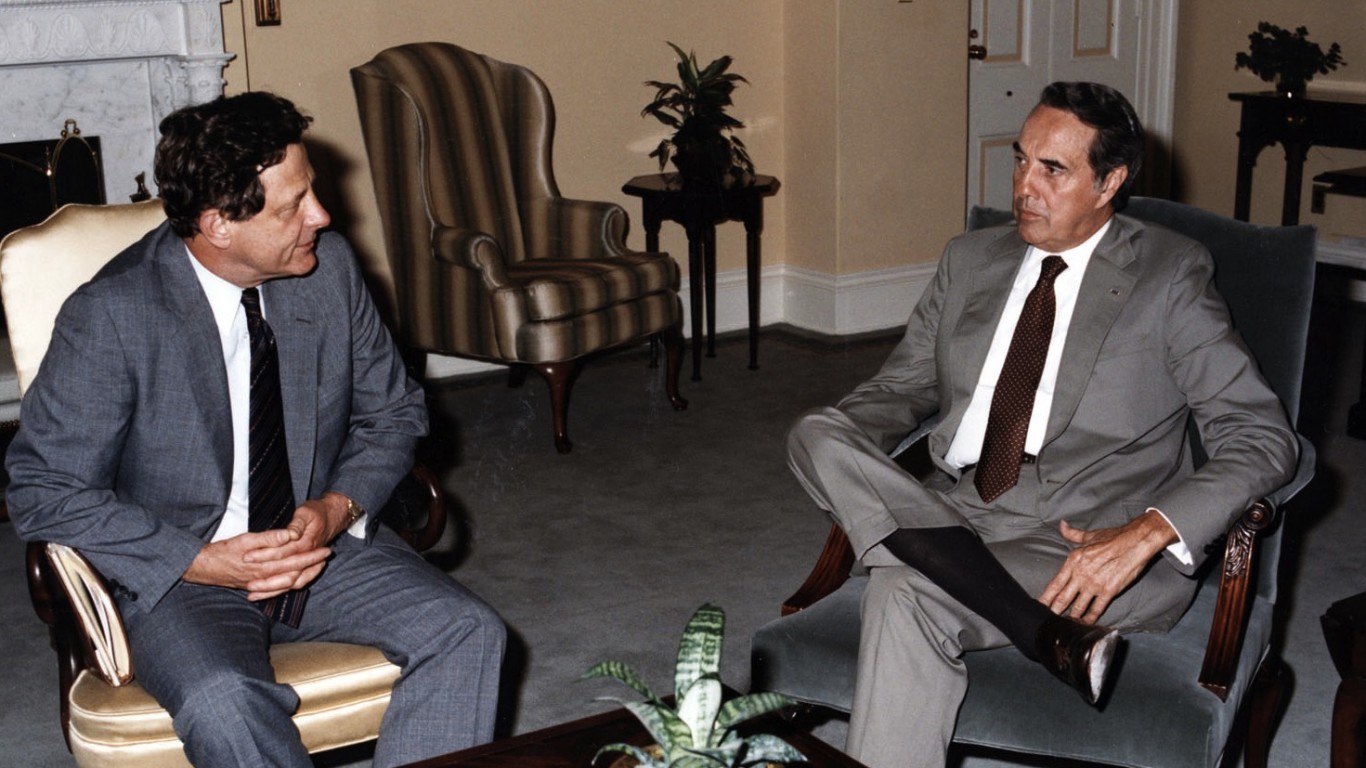
Birch Bayh
> IA Caucus vote: 12.0%
Indiana Sen. Birch Bayh positioned himself as the liberal option to the more centrist Jimmy Carter. However, he finished well behind the Georgia governor in Iowa, and his campaign never gained momentum.

Jimmy Carter
> IA Caucus vote: 27.6%
Jimmy Carter, former governor of Georgia, received the highest voting percentage of any candidate in Iowa. Carter would go on to win the Democratic nomination and the presidency in 1976, defeating President Gerald R. Ford.
[in-text-ad-2]
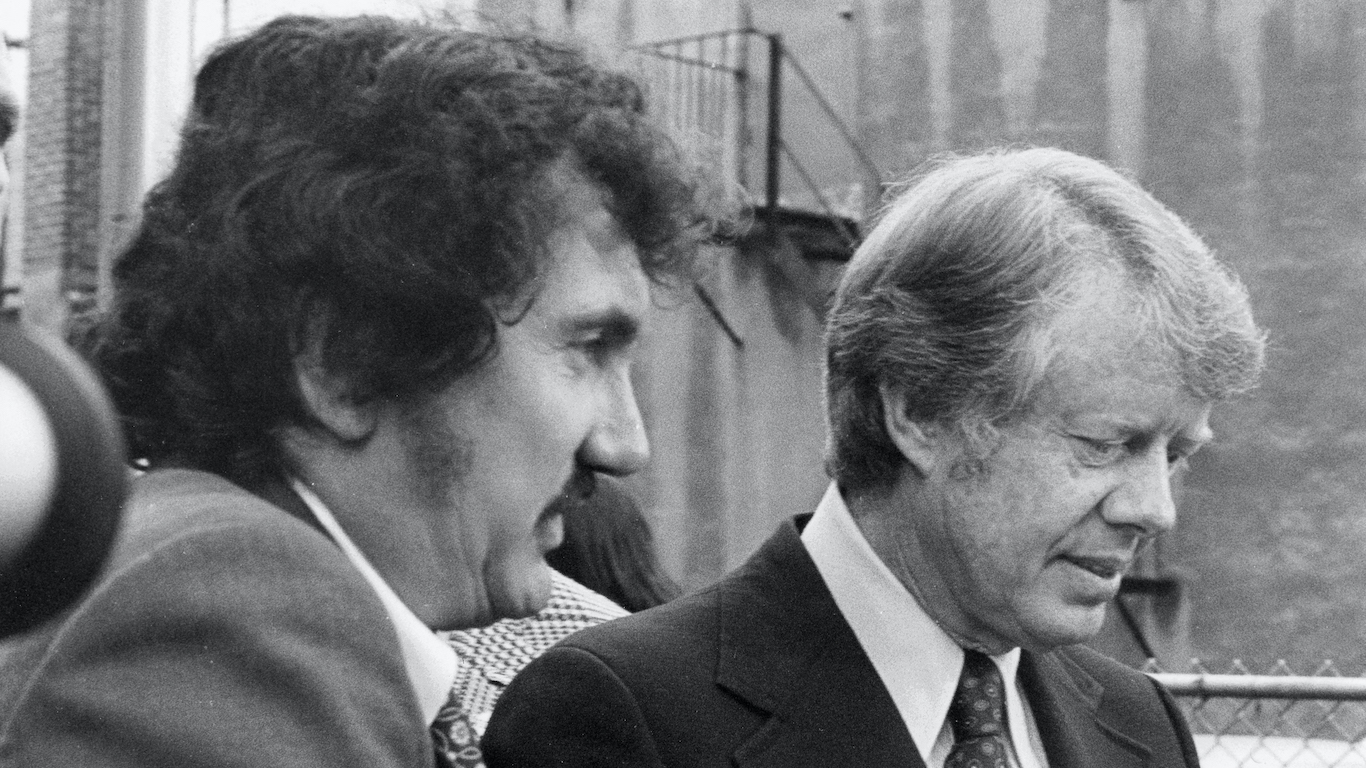
Uncommitted
> IA Caucus vote: 37.2%
Uncommitted delegates in the Iowa caucuses frequently make up large shares of the state’s vote. 1976, however, was one of only two years in which uncommitted delegates made up the largest share of the vote.


Uncommitted
> IA Caucus vote: 9.6%
About 10% of the Iowa delegates in the Democratic Party did not support any candidate for the party presidential nomination, making up the third-biggest bloc of votes.
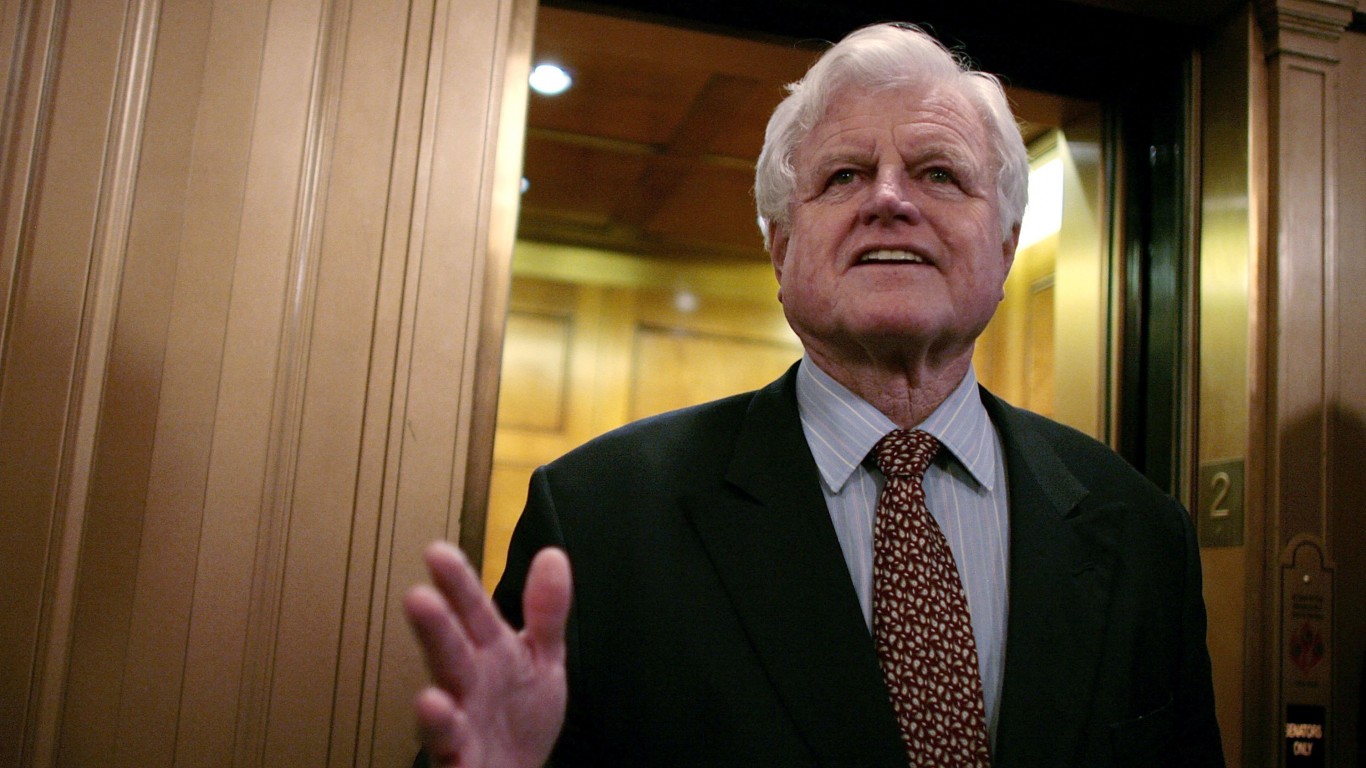
Edward Kennedy
> IA Caucus vote: 31.2%
Edward Kennedy finished a distant second to incumbent Jimmy Carter and ran against the president as the standard-bearer for the liberal wing of the Democratic Party. His insurgency would fail and it would be the last campaign for president for the eight-term senator from Massachusetts.
[in-text-ad]
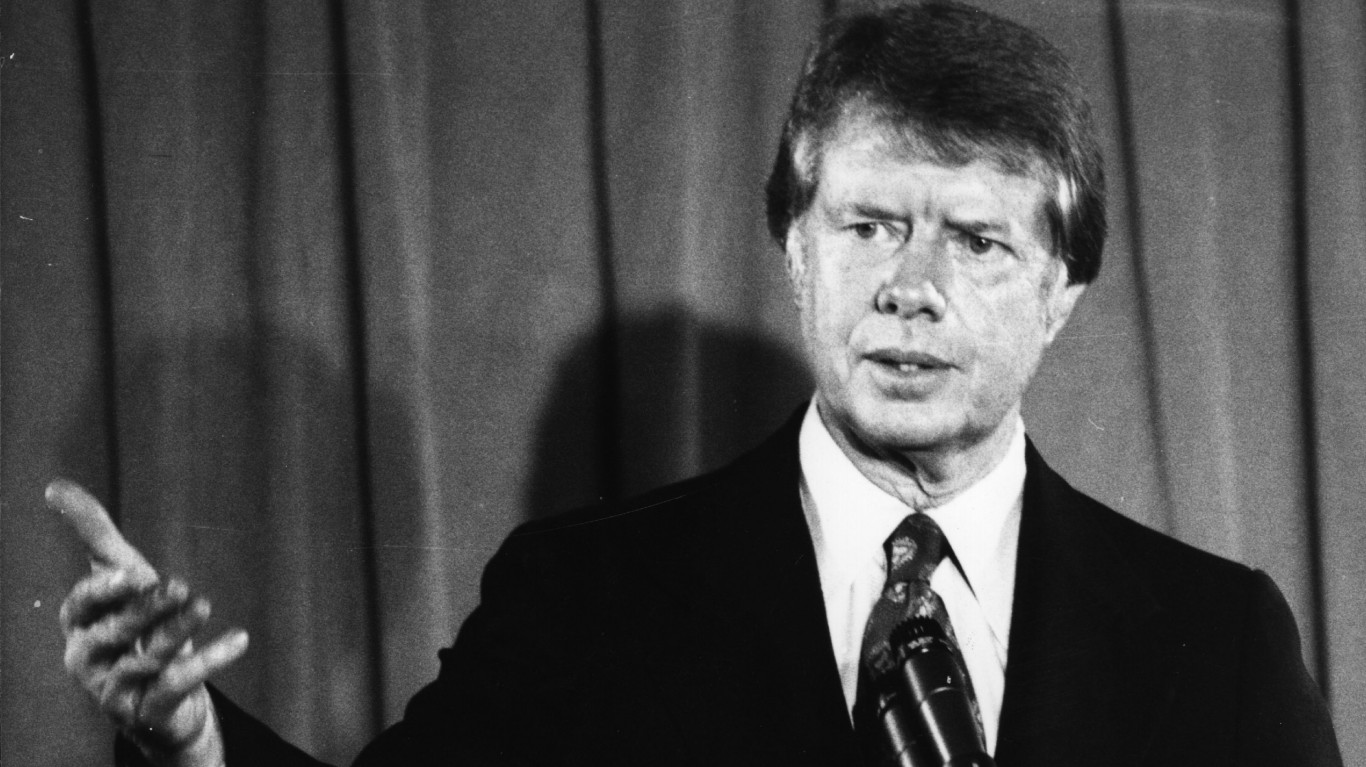
Jimmy Carter
> IA Caucus vote: 59.1%
President Jimmy Carter overwhelmingly won the Iowa caucus with 59.1% of the vote to defeat Sen. Edward Kennedy from Massachusetts. Carter would secure the nomination and fend off Kennedy’s insurgency. Carter, however, lost to Republican Ronald Reagan in a landslide in 1980. He was the first presidential incumbent to lose since Herbert Hoover was beaten by Franklin Roosevelt in 1932.

George McGovern
> IA Caucus vote: 10.3%
Former South Dakota Sen. George McGovern, who ran and lost as the Democratic candidate for president in 1972, finished a distant third in the Iowa caucuses. The 1984 campaign would be his last foray for president.
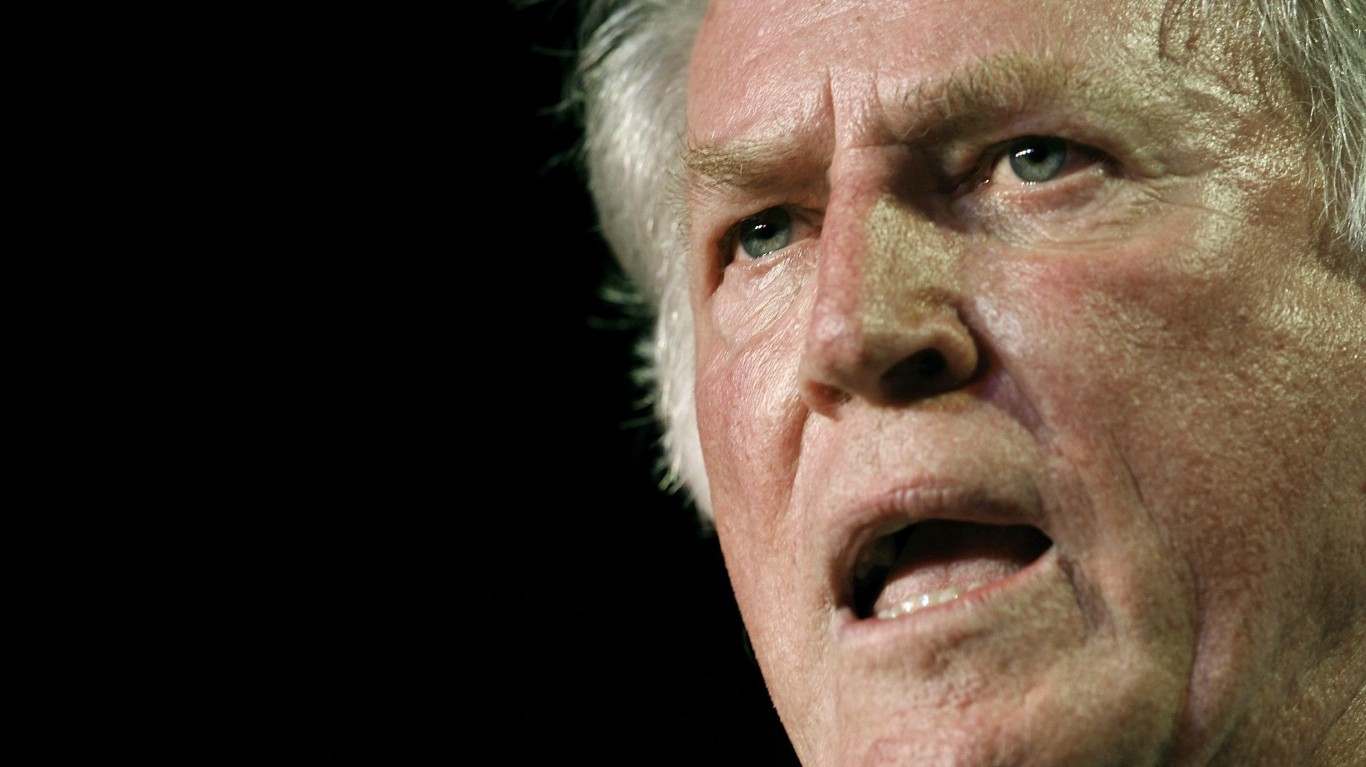
Gary Hart
> IA Caucus vote: 16.5%
Colorado Sen. Gary Hart finished second to Walter Mondale in the Iowa caucuses, but proved to be a strong candidate in 1984. Hart won 26 states during the nomination process, but Mondale gained more delegates to win the nomination.
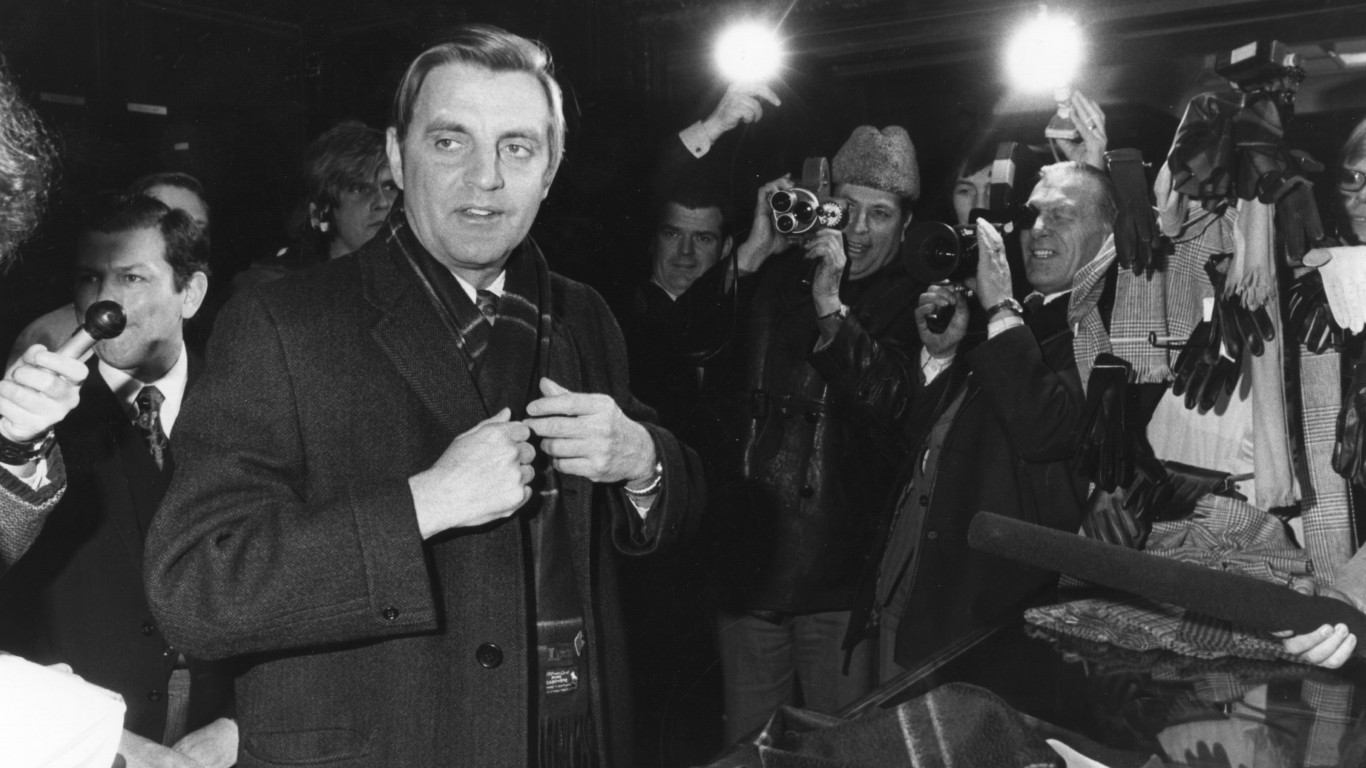
Walter Mondale
> IA Caucus vote: 48.9%
Walter Mondale of Minnesota, former vice president under Jimmy Carter, won a resounding 48.9% of the Iowa caucuses vote in 1984 on his way to the Democratic nomination for president. Mondale’s campaign would be history-making because he named Geraldine Ferraro as his vice presidential running mate, the first woman vice presidential candidate of a major American political party. In the general election, Mondale lost to President Ronald Reagan, who was reelected in a landslide.

[in-text-ad-2]
Michael Dukakis
> IA Caucus vote: 22.2%
Massachusetts Sen. Michael Dukakis managed a third-place in the Iowa caucuses with just 22.2% of the vote, but he roared back in the New Hampshire primaries to win 36% of the vote to outdistance six other Democratic challengers. Dukakis would eventually gain the Democratic nomination but lose to Vice President George H.W. Bush in a landslide in 1988.

Paul Simon
> IA Caucus vote: 26.7%
Sen. Paul Simon from Illinois took advantage of the geographic proximity to Iowa to finish second in the Cornhusker State. He finished third in the New Hampshire primary and won his home state’s contest. Still, his campaign failed to catch fire and he dropped out because of lack of money.
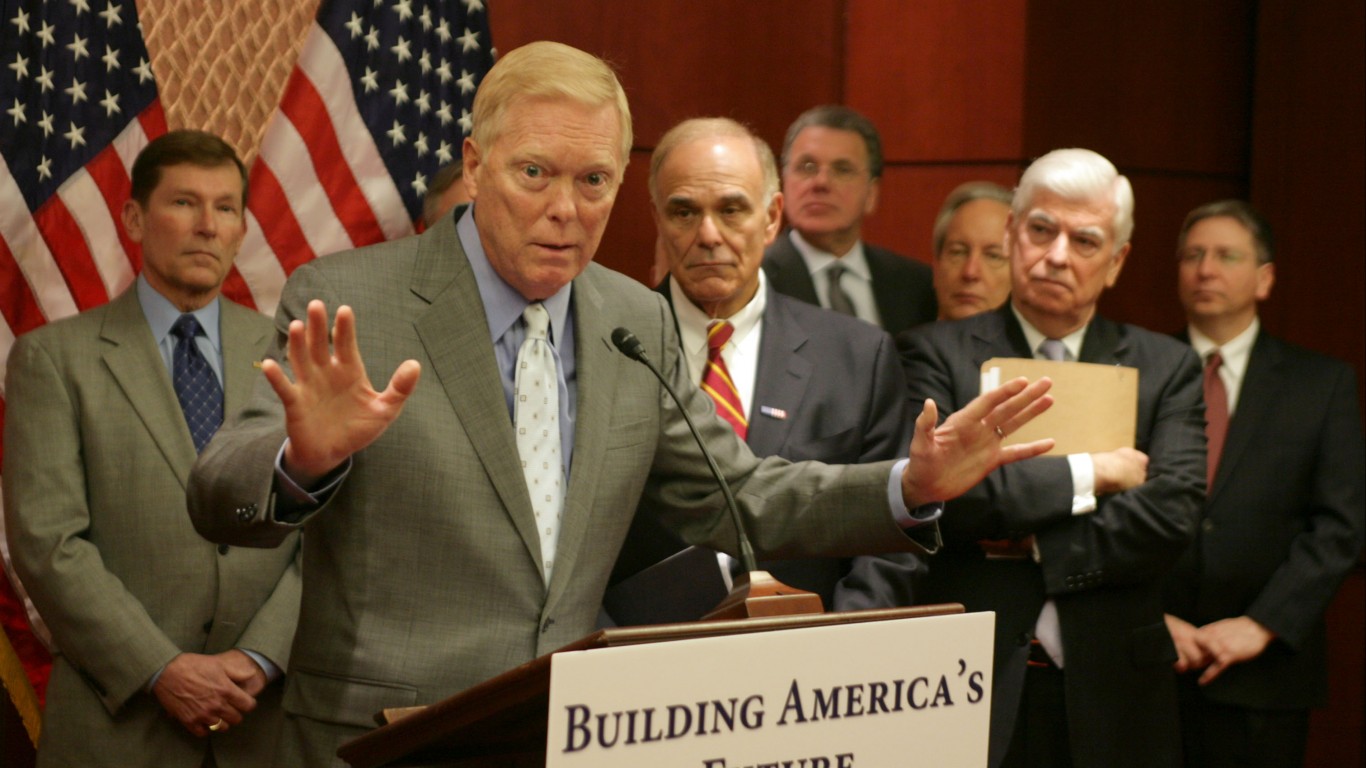
Richard Gephardt
> IA Caucus vote: 33.0%
Richard Gephardt, a congressman representing Iowa’s southern neighbor Missouri, won the highest percentage of votes in the Iowa caucuses with 33%. Gephardt was bidding to become the first sitting congressman to win the presidency since James Garfield did in 1880.

[in-text-ad]
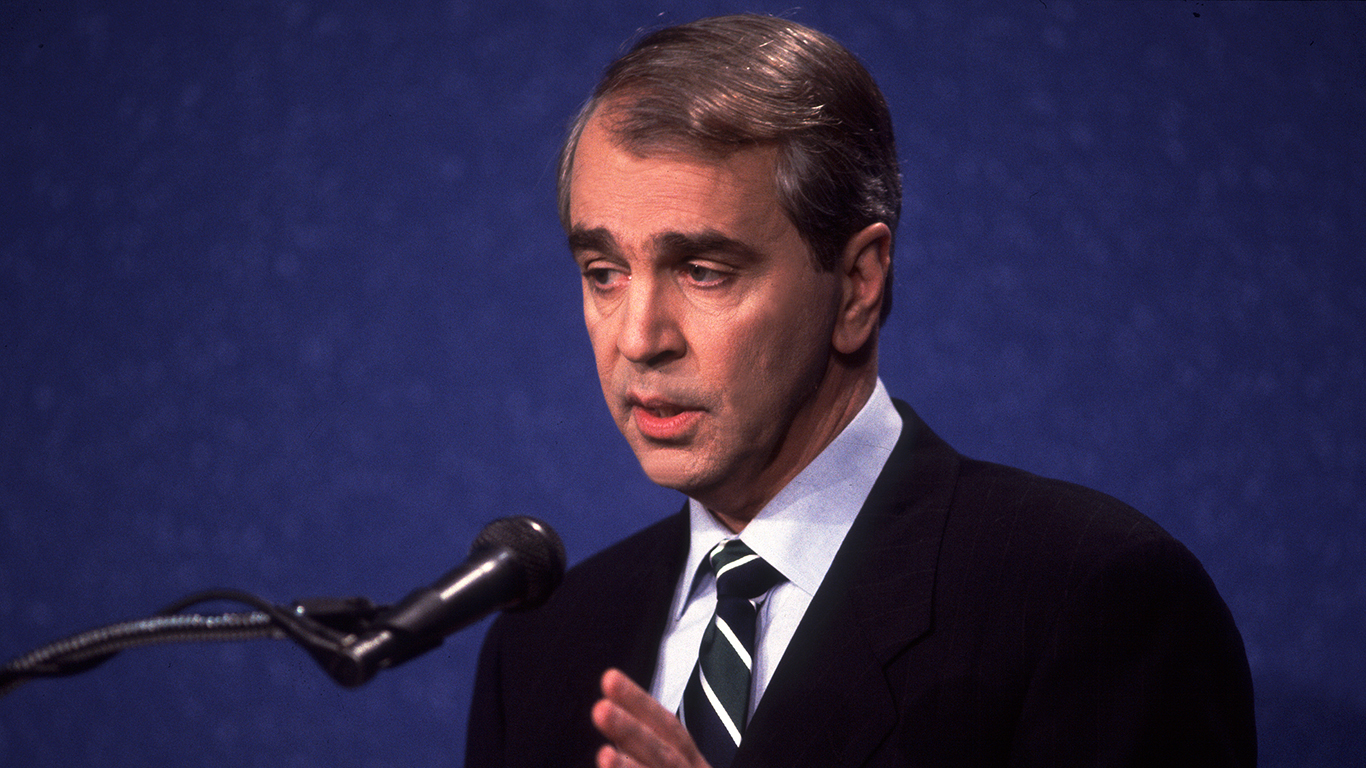
Paul Tsongas
> IA Caucus vote: 4.1%
Paul Tsongas, who offered sober solutions to the nation’s economic woes, finished a distant third in the Iowa caucuses. The Massachusetts senator won the New Hampshire primary and three other state primaries. He could not, however, sustain the momentum and dropped out of the race after failing to win the Illinois and Michigan primaries.
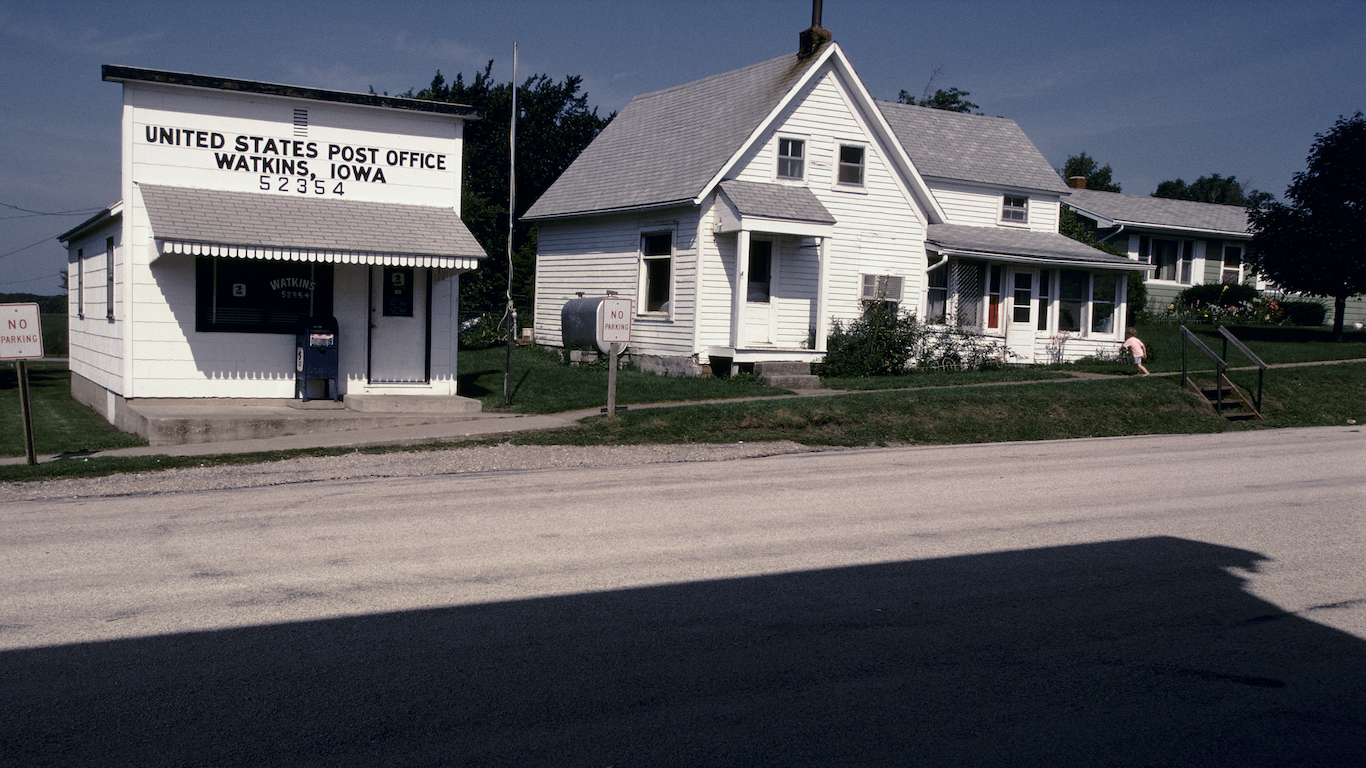
Uncommitted
> IA Caucus vote: 11.9%
Almost 12% of the Iowa delegates in the Democratic Party did not support any candidate for the party presidential nomination, making up the second largest group of votes. In comparison, Bill Clinton, who would go on to win the presidency, placed fourth in the 1992 Iowa caucuses with only 2.8% of the vote.
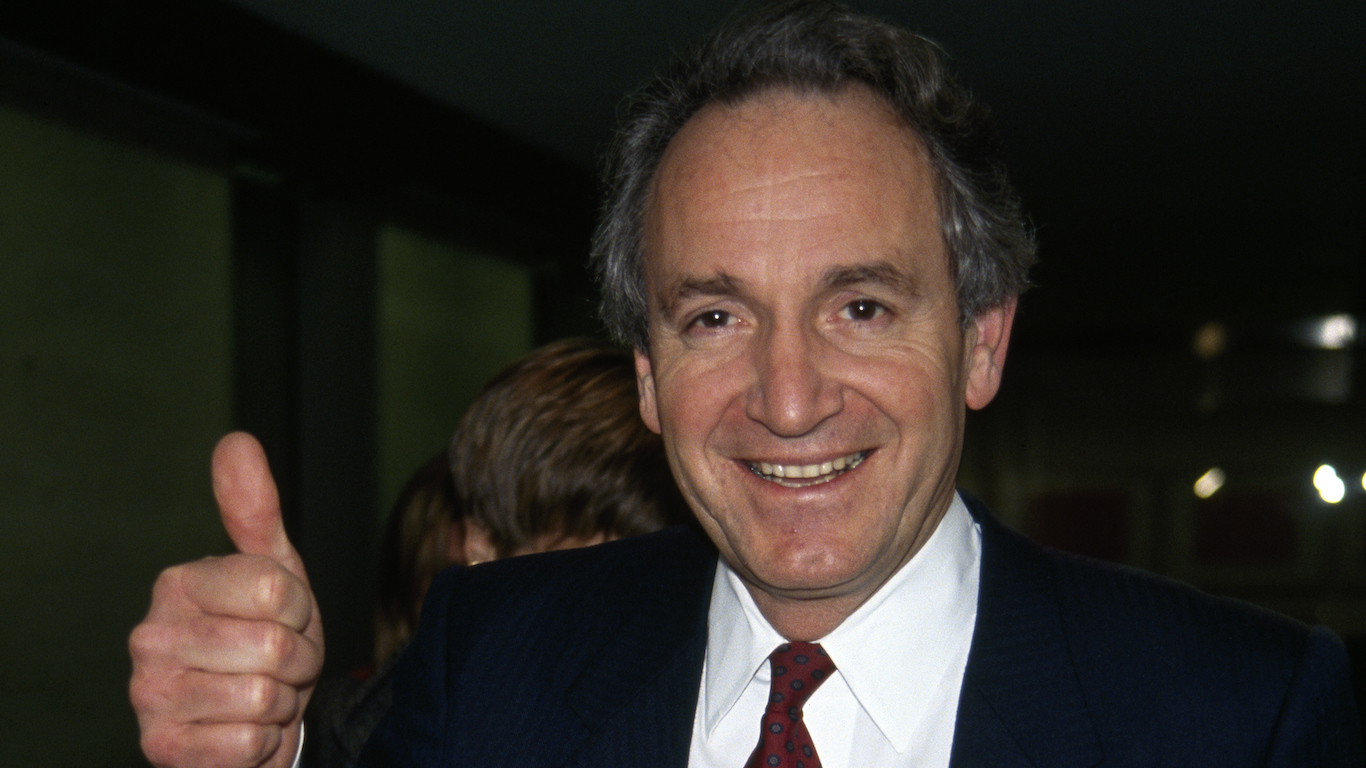
Tom Harkin
> IA Caucus vote: 76.5%
Iowa’s favorite son Tom Harkin, who served the Cornhusker State as senator for almost 30 years, resoundingly won the Iowa caucuses in 1992 with 76.5% of the vote. Gov. Bill Clinton won just 2.8% of the Iowa vote and would also lose the New Hampshire primary to Massachusetts Sen. Paul Tsongas. The so-called “comeback kid” would go on to win the Democratic nomination and unseat President George H.W. Bush in the 1992 election.


Uncommitted
> IA Caucus vote: 1.6%
While comprising only 1.6% of delegates in the 2000 Iowa caucuses, uncommitted voters were the third largest group that year. Of all the years in which uncommitted delegates ranked in the top three, the uncommitted bloc that year comprised the lowest share.
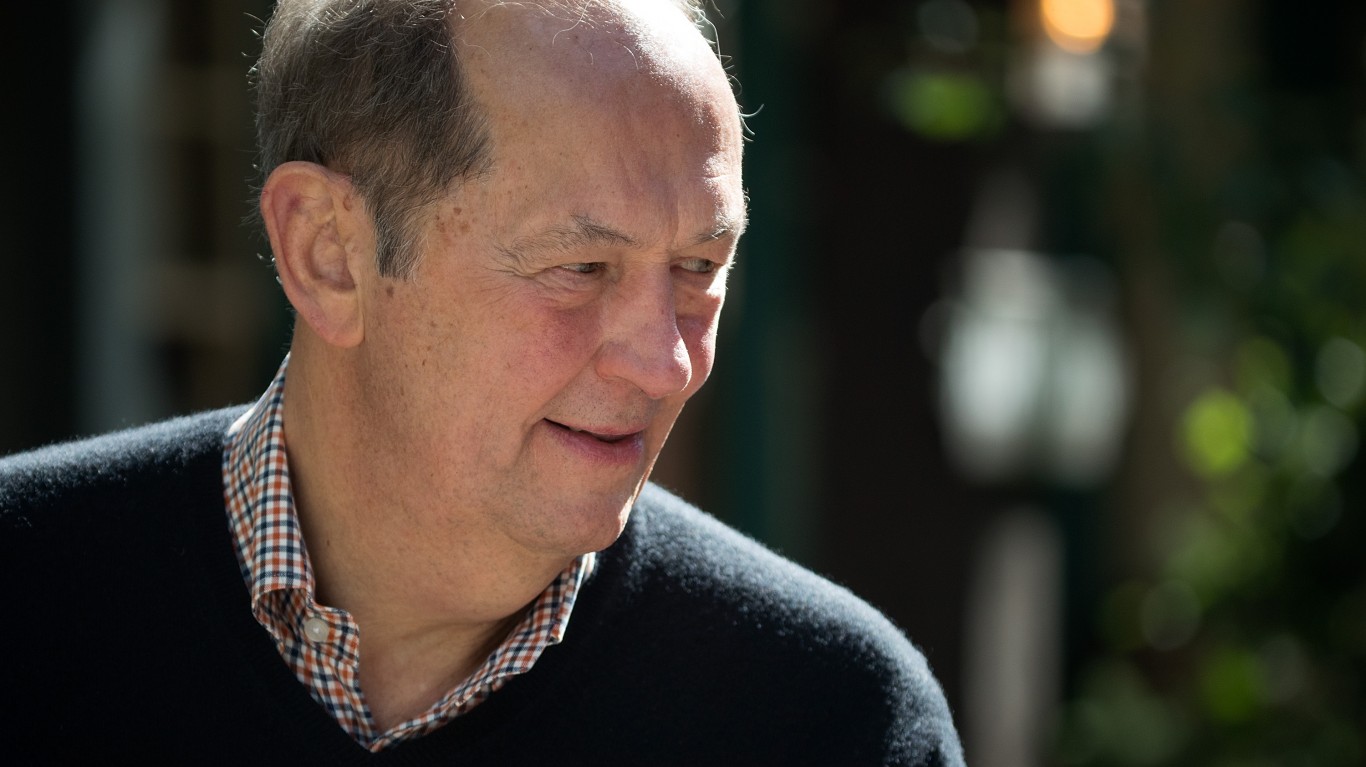
Bill Bradley
> IA Caucus vote: 34.9%
Former college and professional basketball star Bill Bradley, considered at the time a more liberal member of the Democratic Party, finished second to Vice President Al Gore in the Iowa caucuses. Bradley won more than 3 million votes during the primaries but failed to win a single state contest.
[in-text-ad-2]
Al Gore
> IA Caucus vote: 63.4%
In a virtual two-man contest, Vice President Al Gore easily defeated former senator from New Jersey, BIll Bradley, by winning 63.4% of the vote in the Iowa caucuses. Gore would turn back Bradley’s candidacy and go on to win the party nomination. However, he lost to Republican George W. Bush in one of the closest elections in American history in 2000.

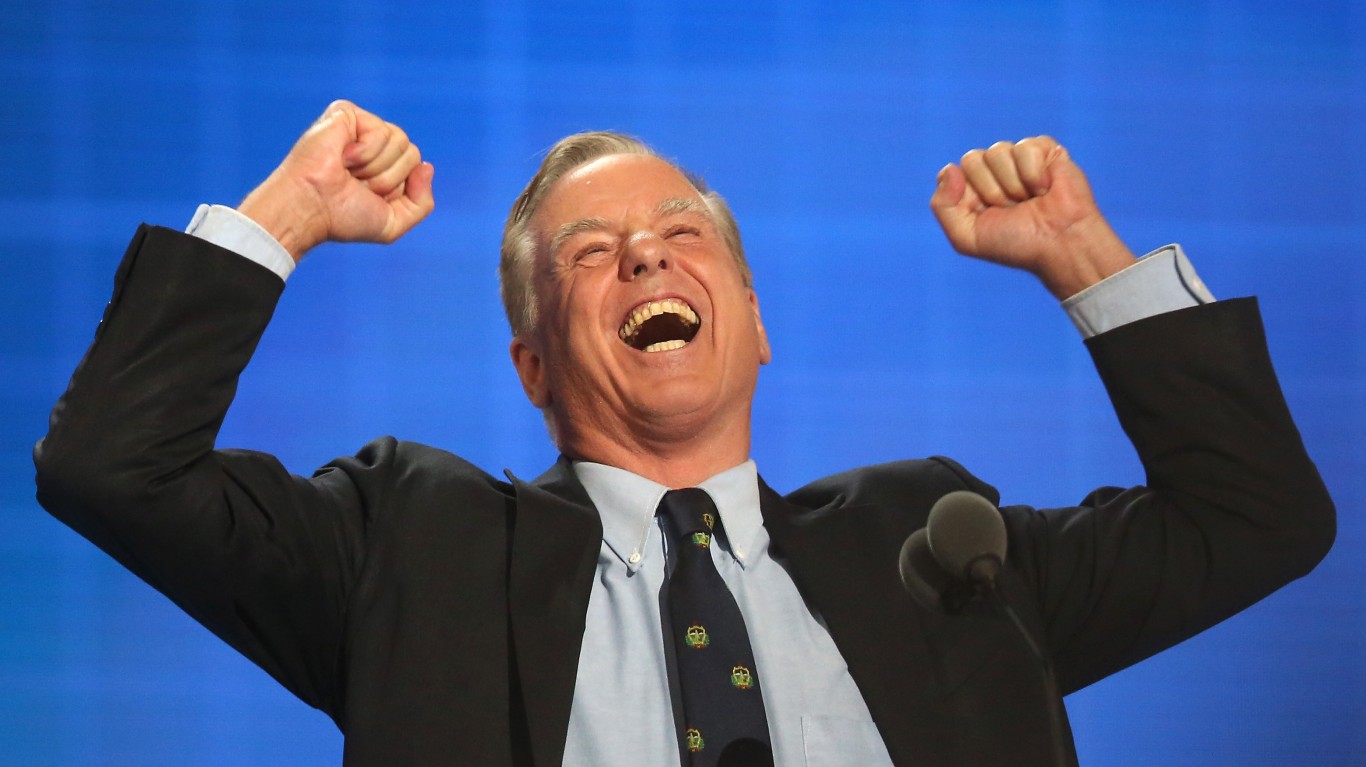
Howard Dean
> IA Caucus vote: 17.4%
Former governor of Vermont Howard Dean, a vocal critic of the invasion of Iraq, won just over 17% of the vote in the 2004 Iowa caucuses. His post-caucus speech in which he very animatedly tried to spur on his supporters became known as “the scream” and was widely lampooned by comedians in the weeks that followed. He lost the New Hampshire primary and suspended his campaign after finishing third in the Wisconsin primary in February.
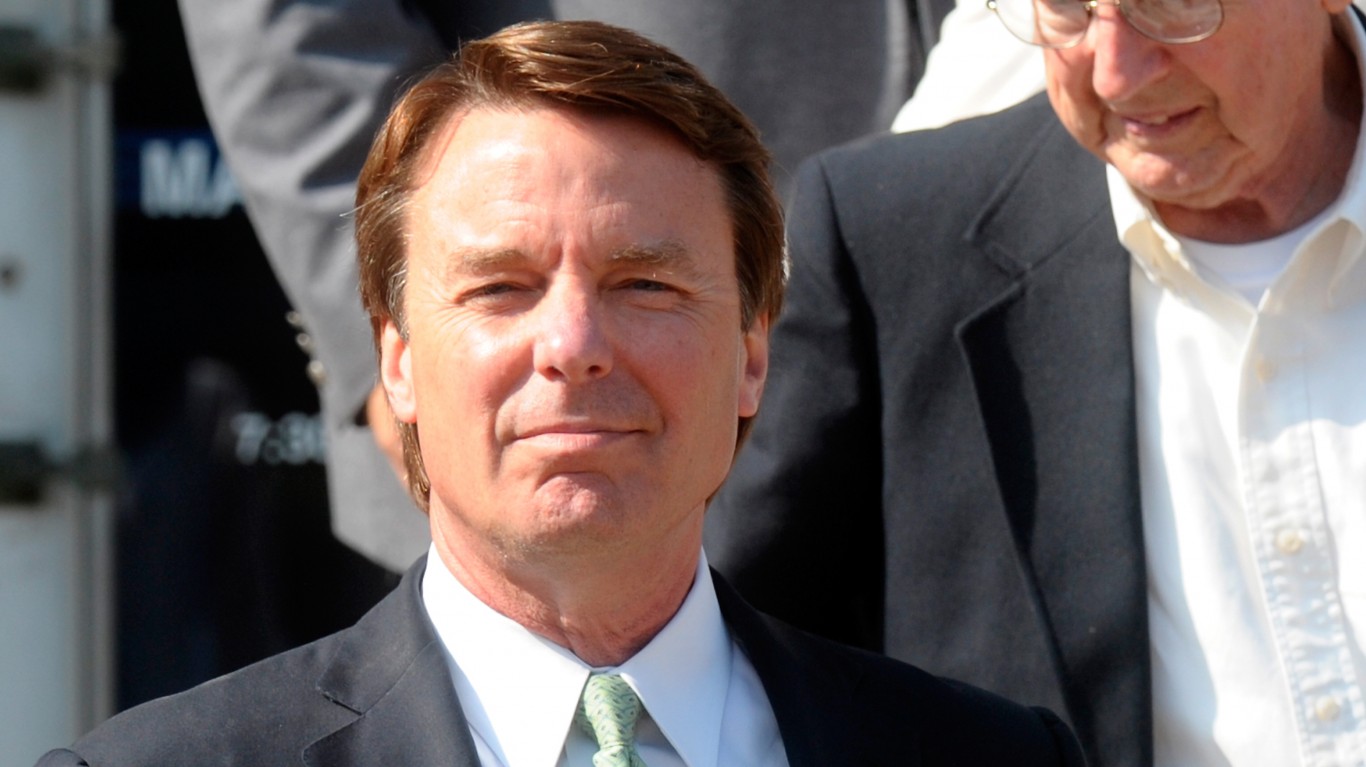
John Edwards
> IA Caucus vote: 36.0%
John Edwards, a former senator from North Carolina, lost the Iowa race in 2004 to John Kerry, a senator from Massachusetts, by about 5 percentage points. Edwards had begun an unofficial campaign as early as 2000, delivering speeches in Iowa. Deemed a populist by the media, he lost the party nomination to Kerry. Edwards was Kerry’s nominee for Vice President in 2004, a move Kerry later described as a mistake.
[in-text-ad]

John Kerry
> IA Caucus vote: 37.1%
In a hotly contested vote, longtime Massachusetts Sen. John Kerry edged out North Carolina Sen. John Edwards to win the Iowa caucuses, a victory that would put him on the road to win the 2004 Democratic nomination. Kerry would lose to President George W. Bush in the general election.

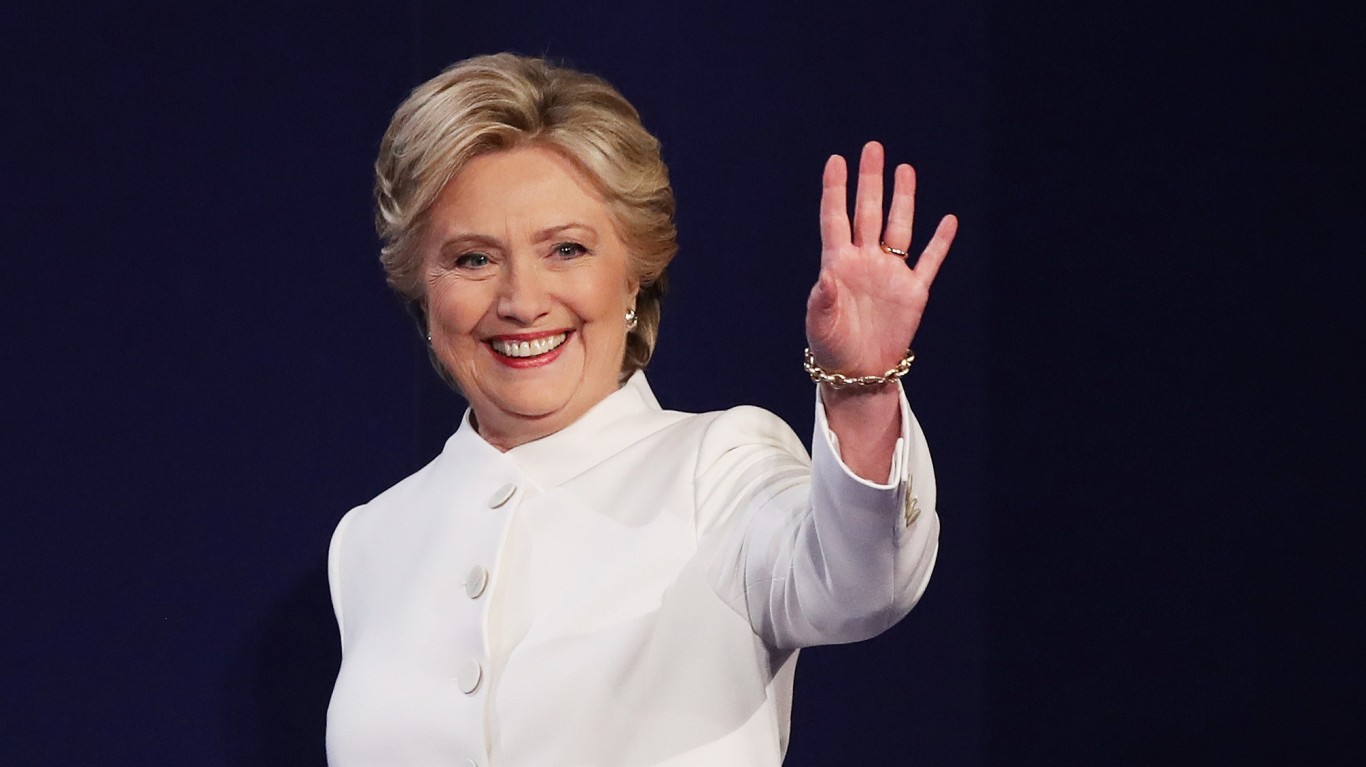
Hillary Clinton
> IA Caucus vote: 29.5%
New York Sen. Hillary Clinton, bidding to become the first woman president of the United States, suffered a stinging defeat at the Iowa caucus, finishing third just behind former senator from North Carolina John Edwards, and well behind Illinois Sen. Barack Obama. Clinton rebounded to win nine of the next 12 primaries, but Obama would grab the momentum for good by winning 14 primaries on Super Tuesday on Feb. 5.

John Edwards
> IA Caucus vote: 29.8%
John Edwards finished second in Iowa in 2008, far behind Barack Obama and just ahead of Hillary Clinton. Edwards, who was running a second time for presidency and announced plans to deal with poverty, faced many questions about his personal wealth, particularly the price of his recently built home, which was worth more than $6 million.
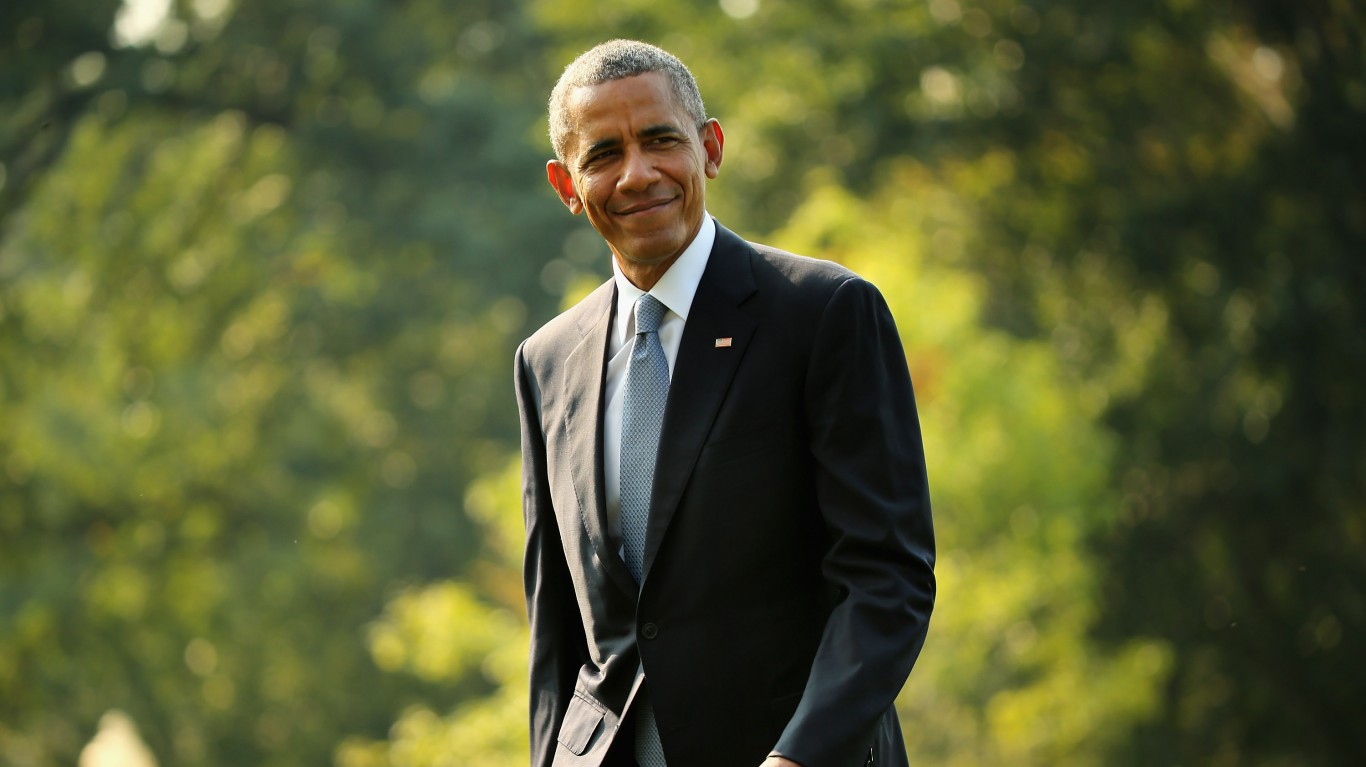
Barack Obama
> IA Caucus vote: 37.6%
Wooed by his message of change, a large turnout of voters at the Iowa caucuses carried Illinois Sen. Barack Obama to victory, with 37.6% of the vote. The result was seen as a setback for former first lady Hillary Clinton as well as former senator from North Carolina John Edwards, who was making his second bid for the presidency. Obama would go to win the Democratic nomination and defeat Republican John McCain to become America’s first African-American president.

[in-text-ad-2]
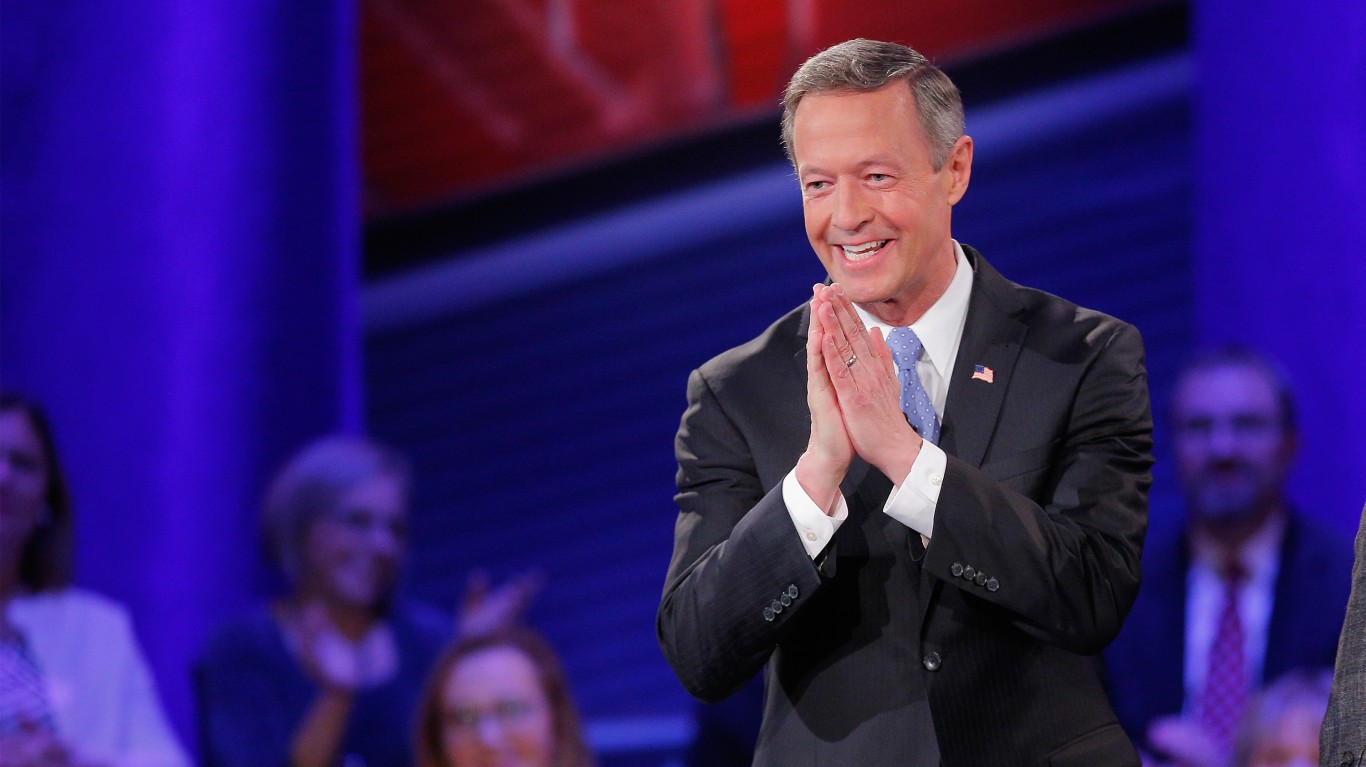
Martin O’Malley
> IA Caucus vote: 0.6%
Former governor of Maryland Martin O’Malley received less than 1% of the Iowa caucuses vote in 2016, which amounted to a two-person contest between Vermont Sen. Bernie Sanders and former secretary of state Hillary Clinton. O’Malley, positioning himself as a youthful progressive alternative to Bernie Sanders, suspended his campaign after the Iowa result.
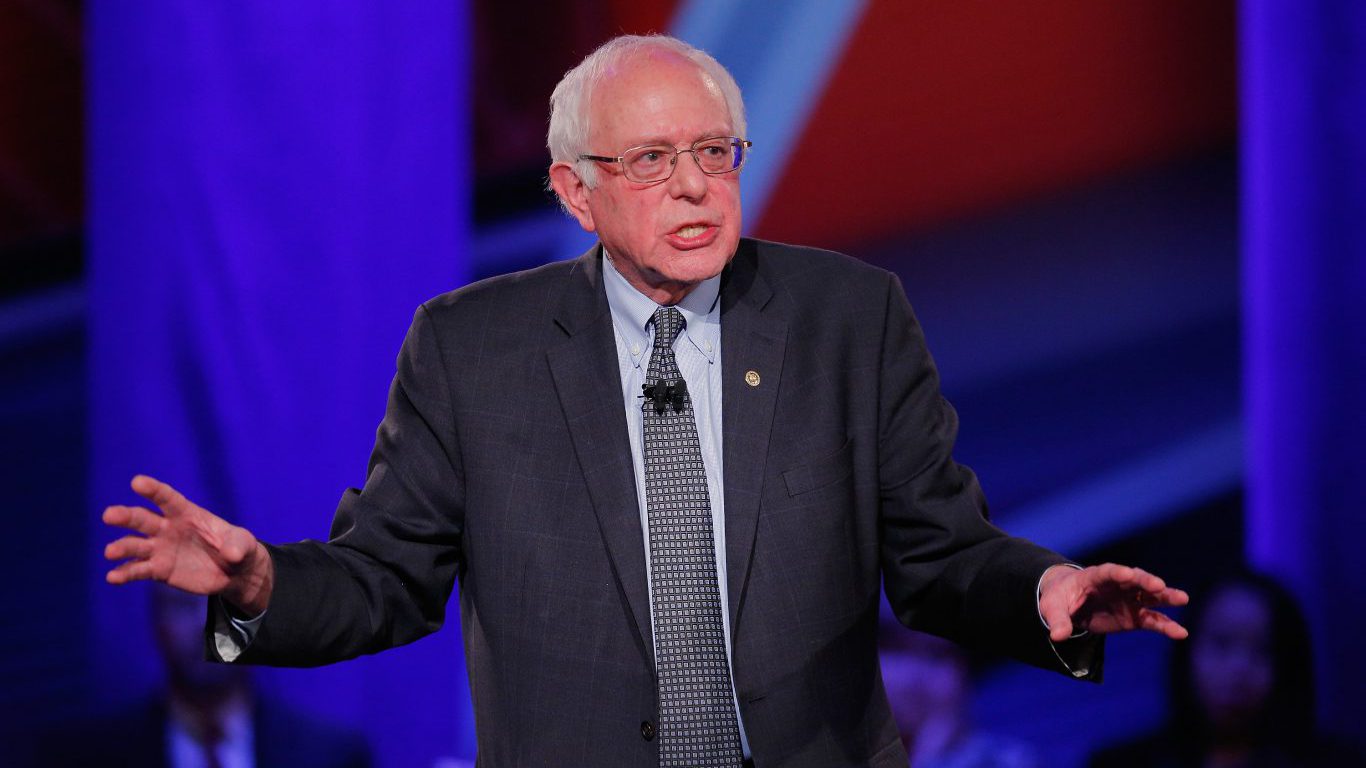
Bernie Sanders
> IA Caucus vote: 49.6%
The success of Bernie Sanders in the 2016 contest surprised many people. His campaign showed that young liberal voters, specifically those under 35, can influence an election. The senator from Vermont technically lost in Iowa, but the result was almost a tie. Hillary Clinton won with 49.84% of the vote, while Sanders got 49.59%.
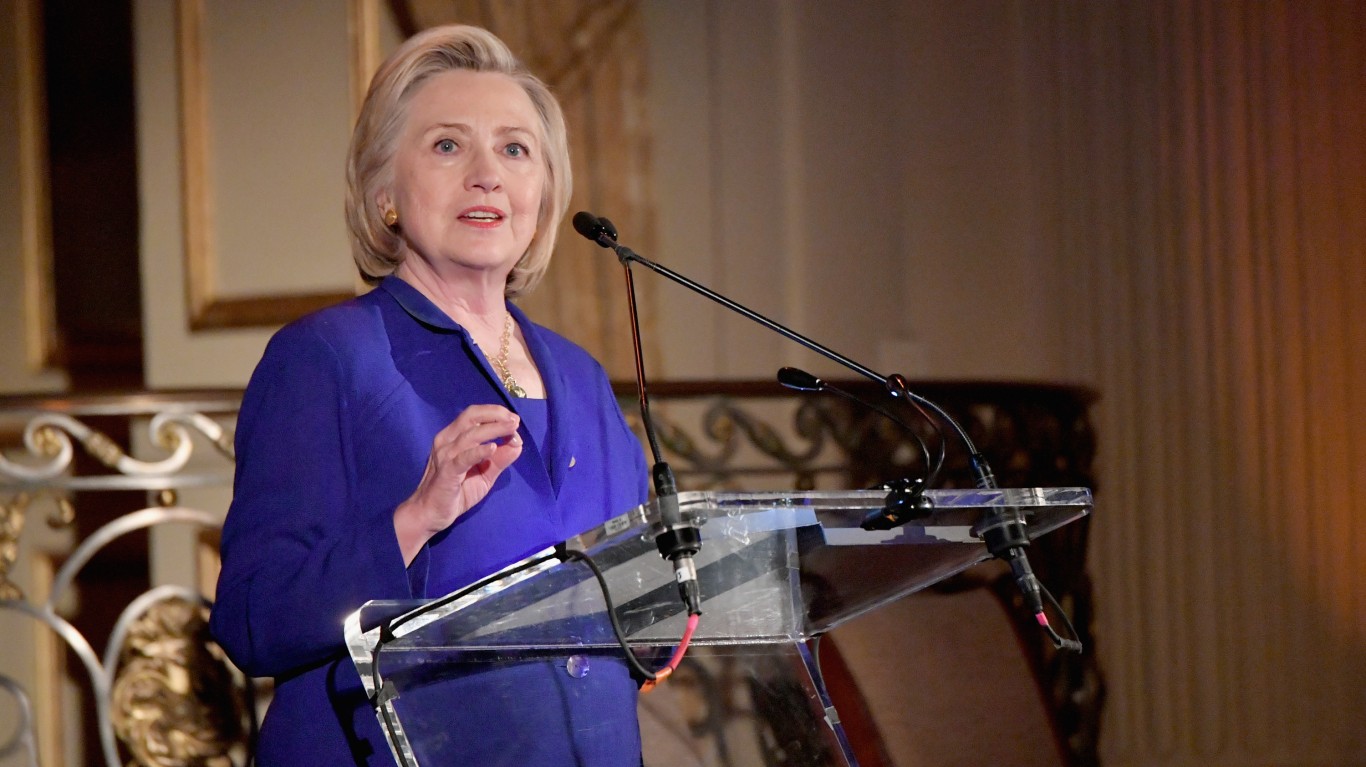
Hillary Clinton
> IA Caucus vote: 49.9%
Former first lady Hillary Clinton narrowly won the Iowa caucuses over the surprisingly strong showing of Vermont Sen. Bernie Sanders. Clinton would eventually win the Democratic nomination but not before fending off a spirited challenge from Sanders. Clinton’s bid to become the nation’s first female president was thwarted by Republican Donald Trump in 2016.

[in-text-ad]
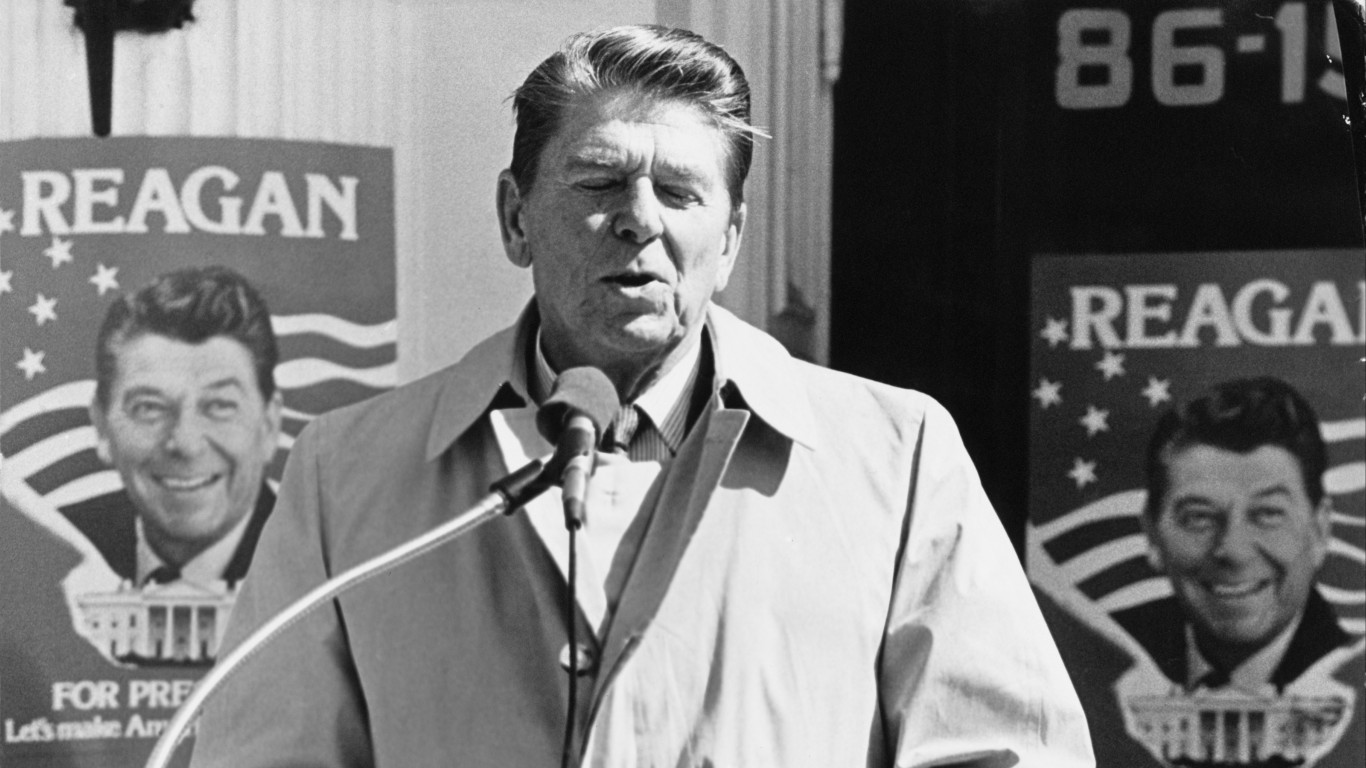
Ronald Reagan
> IA Caucus vote: 42.5%
Given the legacy of President Ronald Reagan, it may be hard to conceive that he ran unsuccessfully for the Republican presidential nomination twice, in 1968 and 1976. In 1976, he finished second with 43% of the vote, losing to Gerald Ford by 2 percentage points.
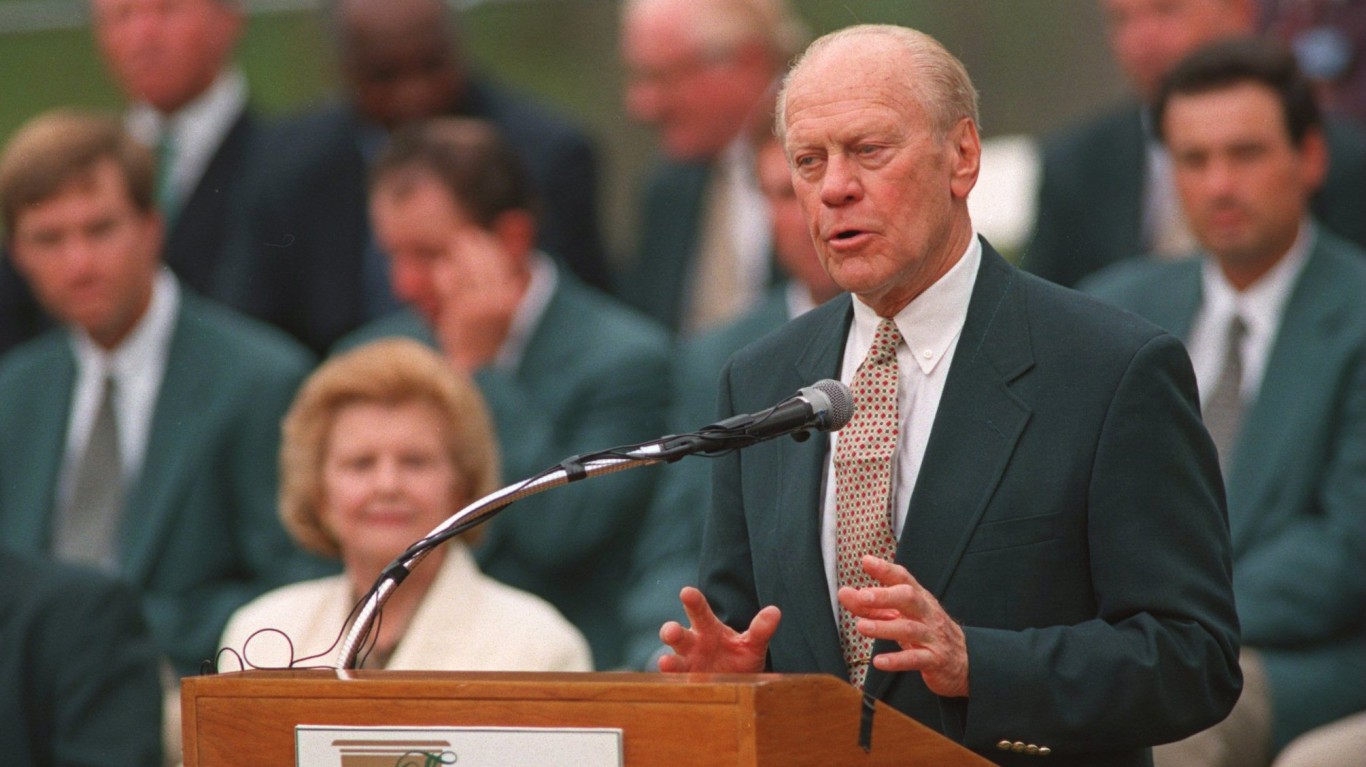
Gerald Ford
> IA Caucus vote: 45.3%
Gerald Ford, who became president after the resignation of Richard Nixon in 1974, survived former governor of California Ronald Reagan’s strong showing to win the Iowa caucuses by less than 3 percentage points. Reagan’s conservative insurgency would challenge Ford all the way to the Republican National Convention before Ford secured the nomination. Ford, haunted by his pardon of disgraced former president Richard Nixon, would lose to Jimmy Carter in the 1976 election.

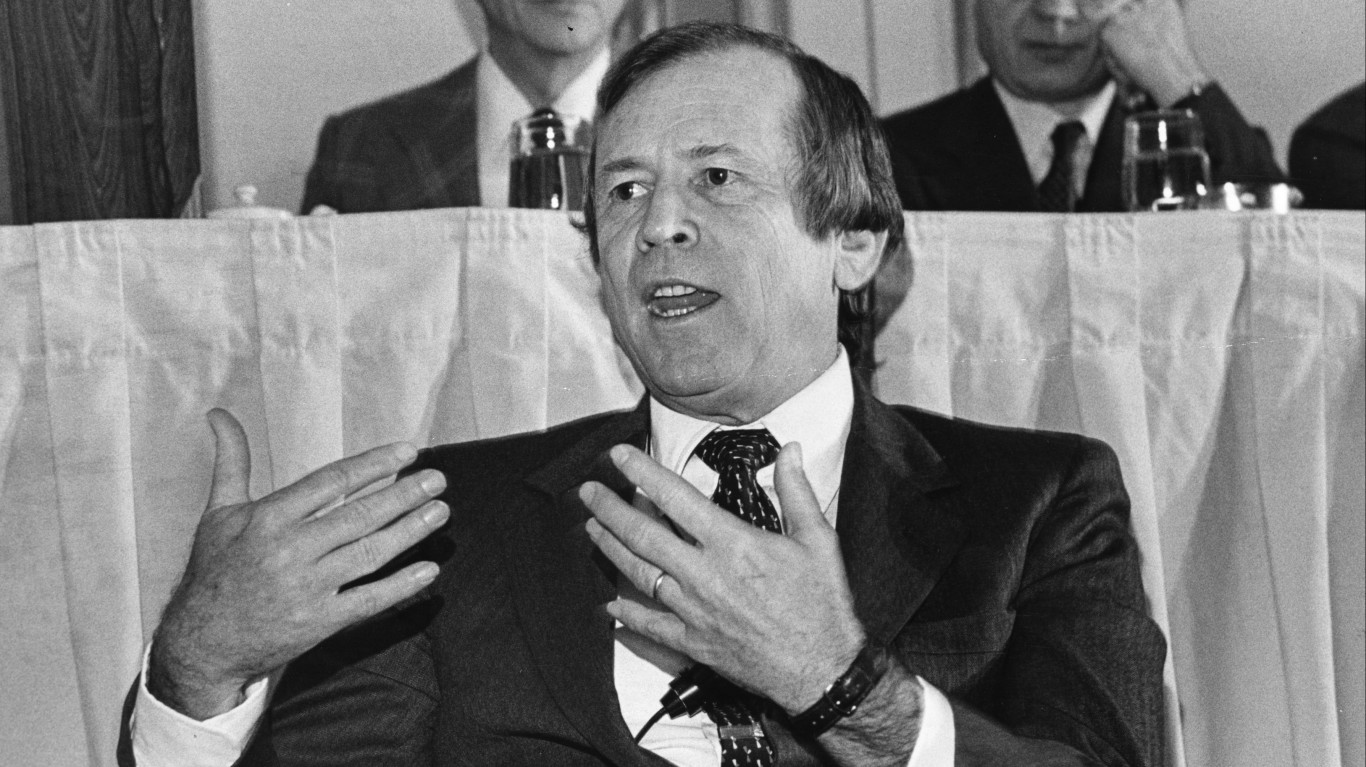
Howard Baker
> IA Caucus vote: 15.3%
Tennessee Sen. Howard Baker, who had been distinguished as a dispassionate member on the Senate Watergate Committee, was unable to leverage that credibility as a presidential candidate. Baker finished third in the Iowa caucuses, behind George H.W. Bush and Ronald Reagan, and dropped out of the race.
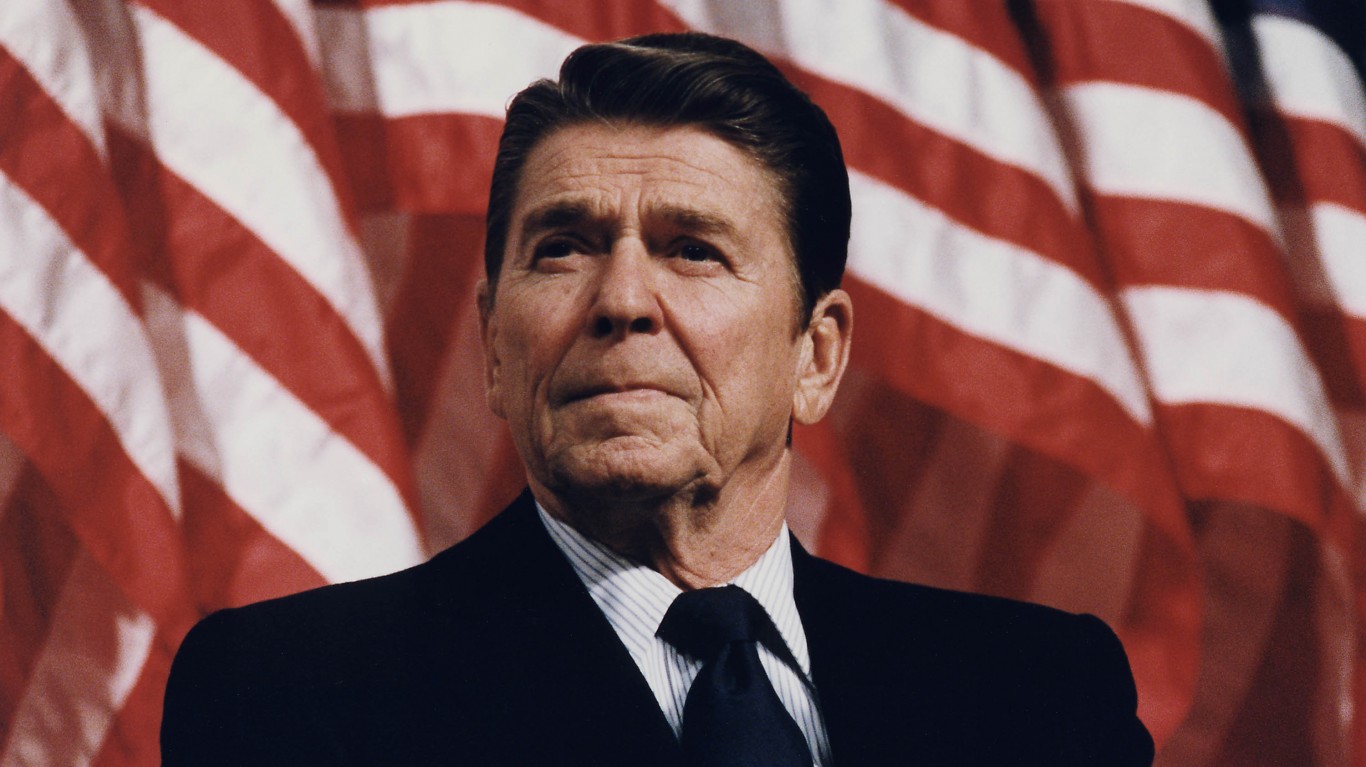
Ronald Reagan
> IA Caucus vote: 29.5%
Former governor of California Ronald Reagan finished second to George H.W. Bush in the Iowa caucuses. But his showing served notice that his conservative message was a force to be reckoned with. Reagan won the New Hampshire primary easily and his momentum grew, culminating in his victory in the Michigan primary in May of 1980 that knocked Bush out of the race. Bush was the last of six challengers to Reagan to concede defeat. Reagan won the nomination and would go on to rout President Jimmy Carter in the 1980 election.
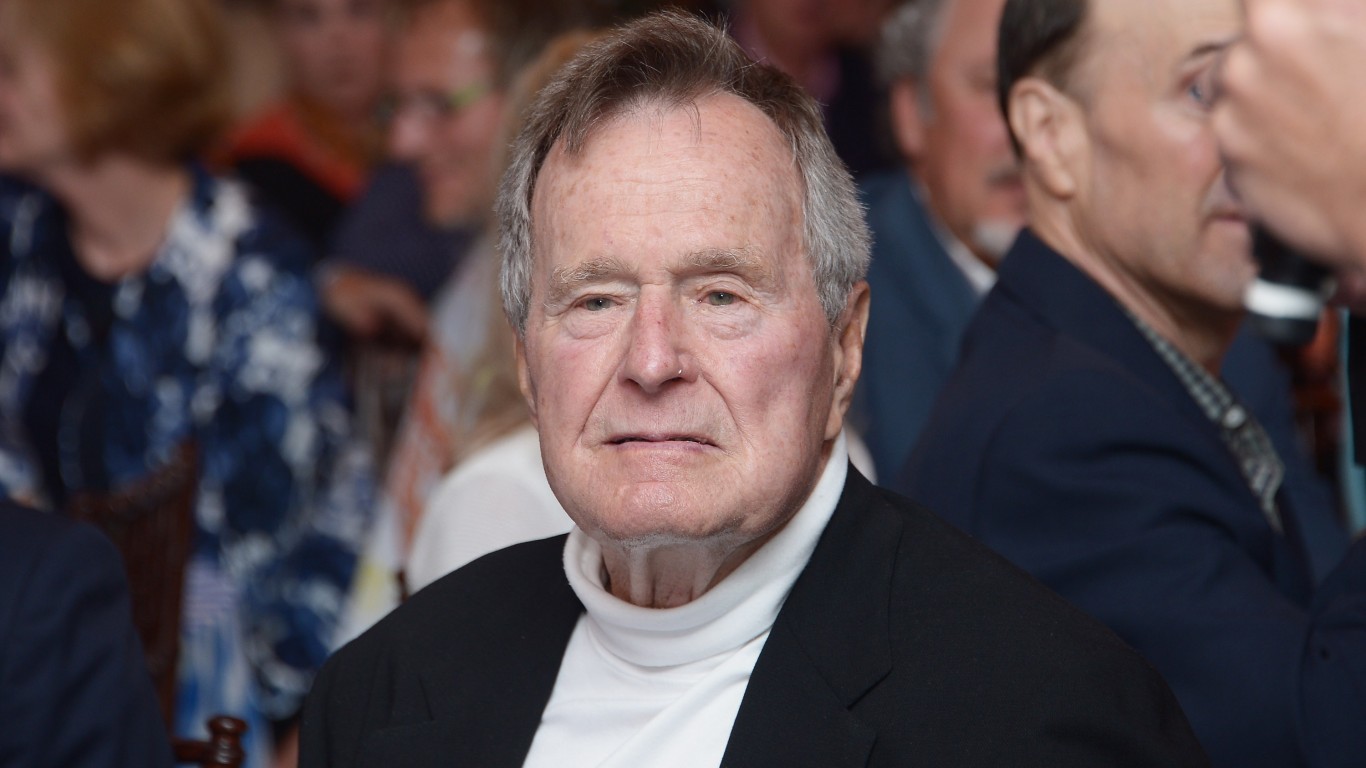
George H.W. Bush
> IA Caucus vote: 36.0%
George H.W. Bush, moderate candidate of the Republican establishment, won the Iowa caucuses with 36% of the vote over former governor of California Ronald Reagan. However, Reagan’s conservative campaign strengthened and eventually overwhelmed the Bush candidacy.
[in-text-ad-2]

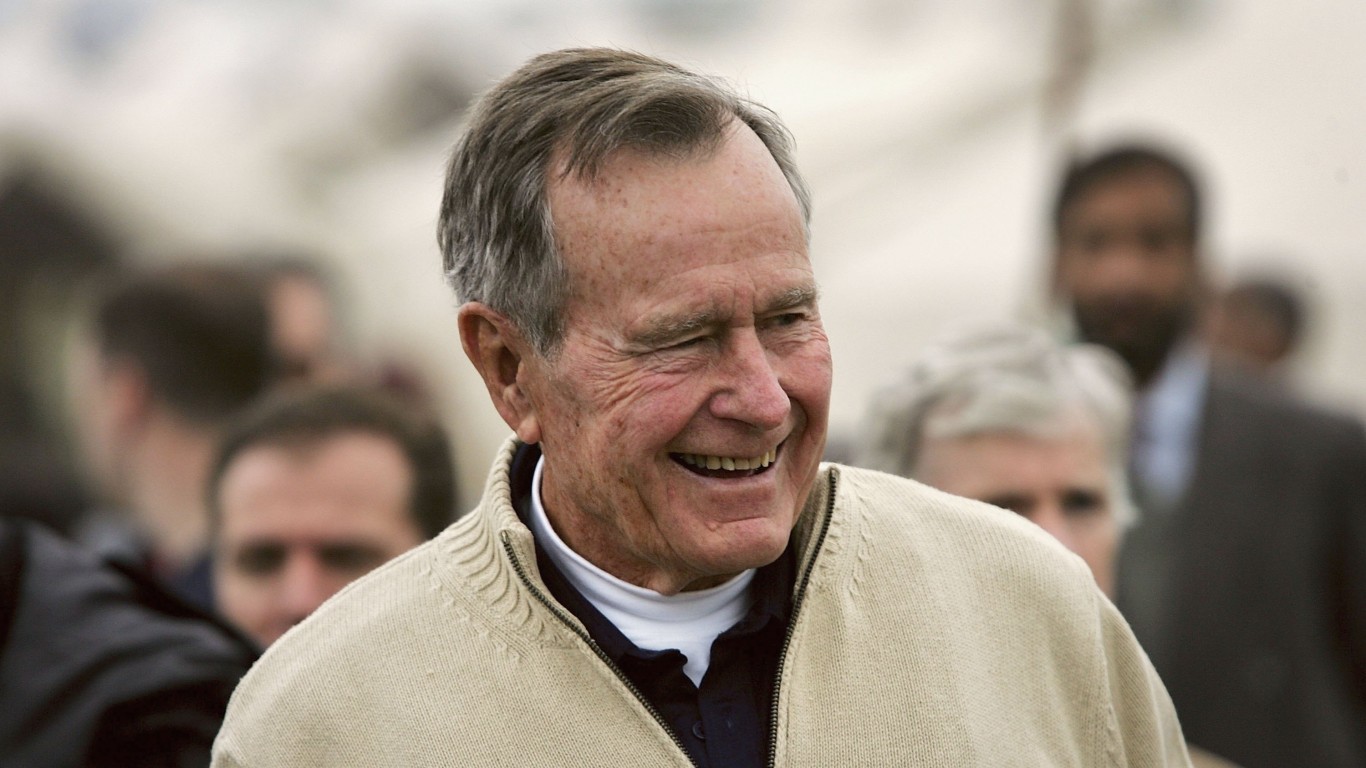
George H.W. Bush
> IA Caucus vote: 18.6%
The 1988 Iowa race is another example of a candidate who received the most votes but did not win the party’s presidential nomination. Though Bob Dole won 37.4% of the votes in Iowa and George H.W. Bush finished third with 18.6% of the vote, it was Bush that won the party nomination. He then also won the general election.
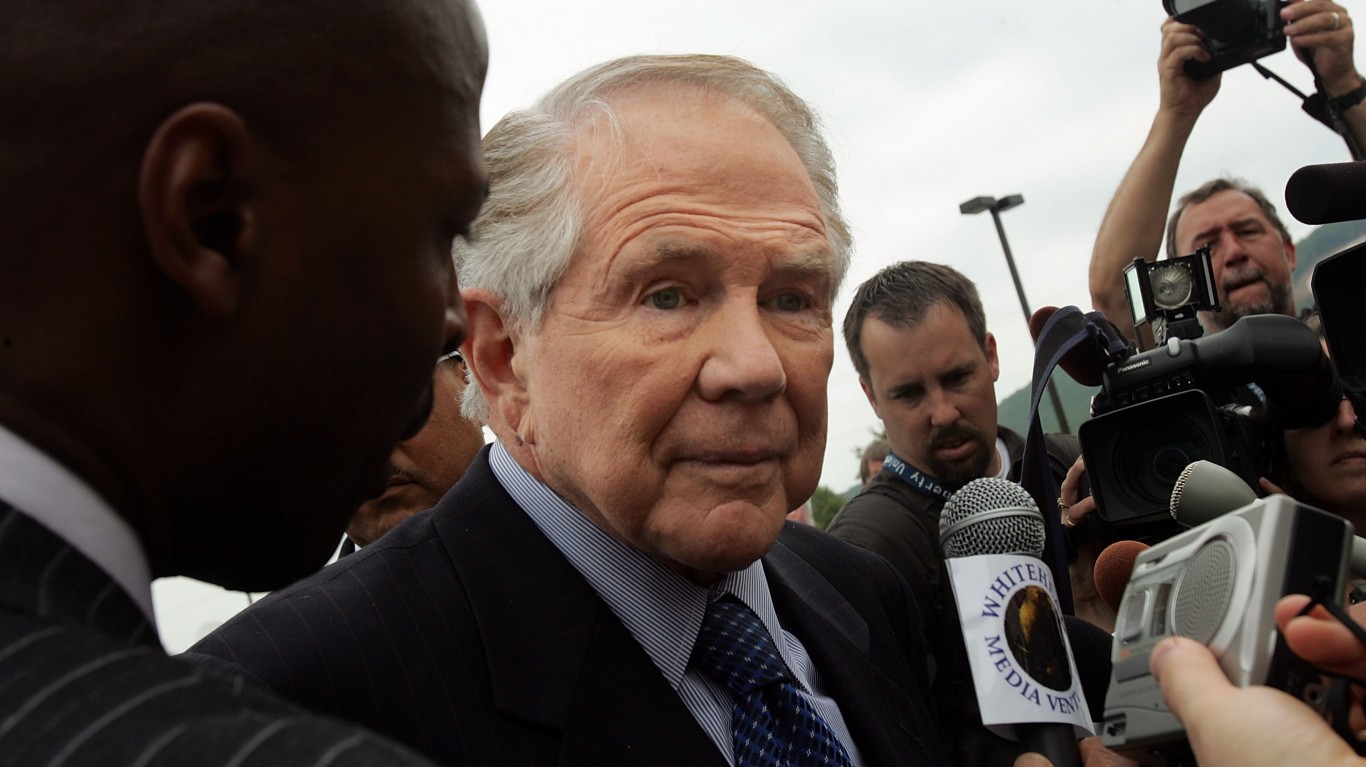
Pat Robertson
> IA Caucus vote: 24.6%
Former television evangelist and conservative presidential candidate Pat Robertson, boosted by a strong organization in Iowa, startled the Republican establishment by finishing second in the 1988 Iowa caucuses. His momentum dissipated in New Hampshire, however, where he finished fifth out of six candidates in that state’s primary, getting 9% of the vote.
Bob Dole
> IA Caucus vote: 37.4%
Bob Dole, who served as senator from Kansas from 1969 to 1996 and unsuccessfully ran for vice president in 1976, handily won the Iowa caucuses with 37.4% of the vote to turn back former television evangelist Pat Robertson (24.6%) and Vice President George H.W. Bush (18.6%). Bush bounced back with a convincing victory in the New Hampshire primary, and then won 16 of 17 primaries on Super Tuesday on his way to the Republican nomination. Bush soundly defeated Massachusetts Gov. Michael Dukakis to win the 1988 election.
[in-text-ad]

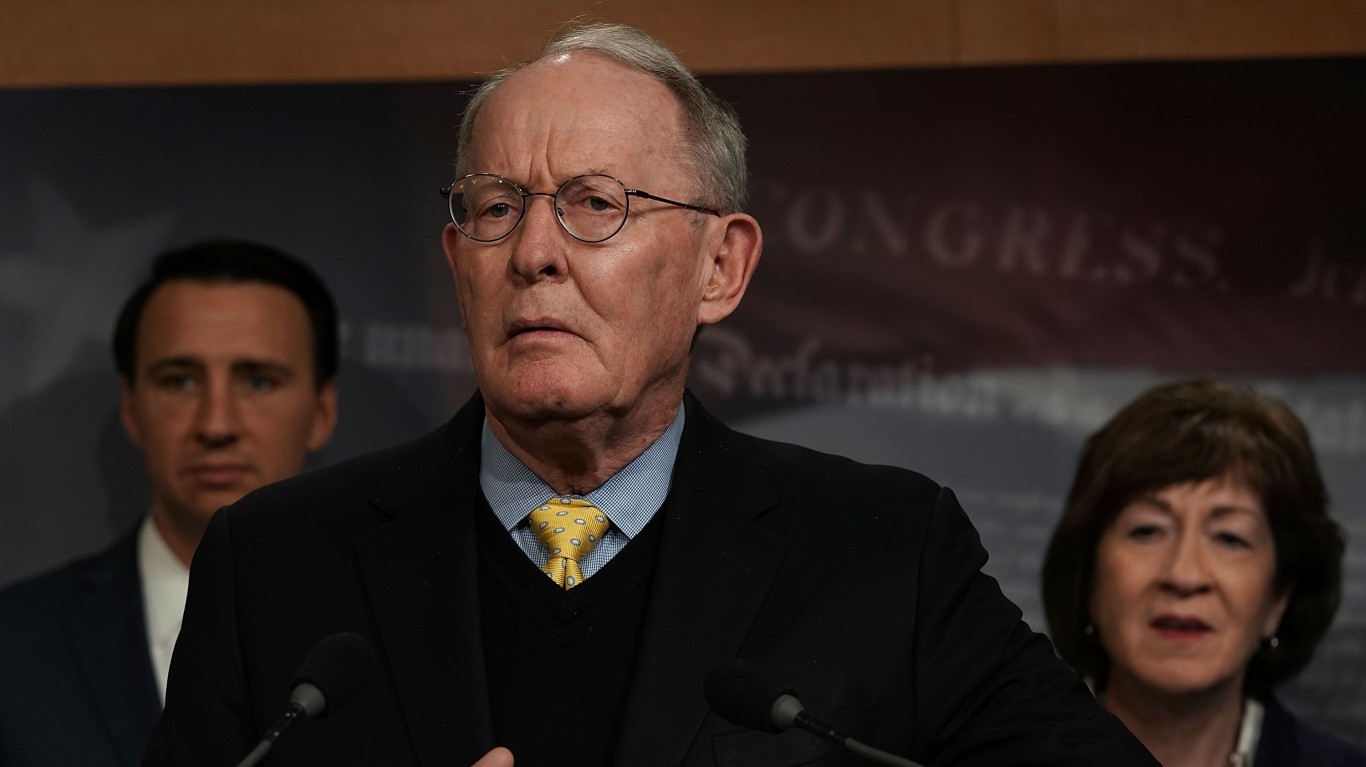
Lamar Alexander
> IA Caucus vote: 17.6%
Tennessee Sen. Lamar Alexander finished third in the Iowa Republican caucuses in 1996 with almost 18% of the votes, behind the winner Bob Dole (26%) and Pat Buchanan (23%). Alexander withdrew from the race before the Super Tuesday primaries. He sought the party nomination again in 2000 but failed to gain any traction.
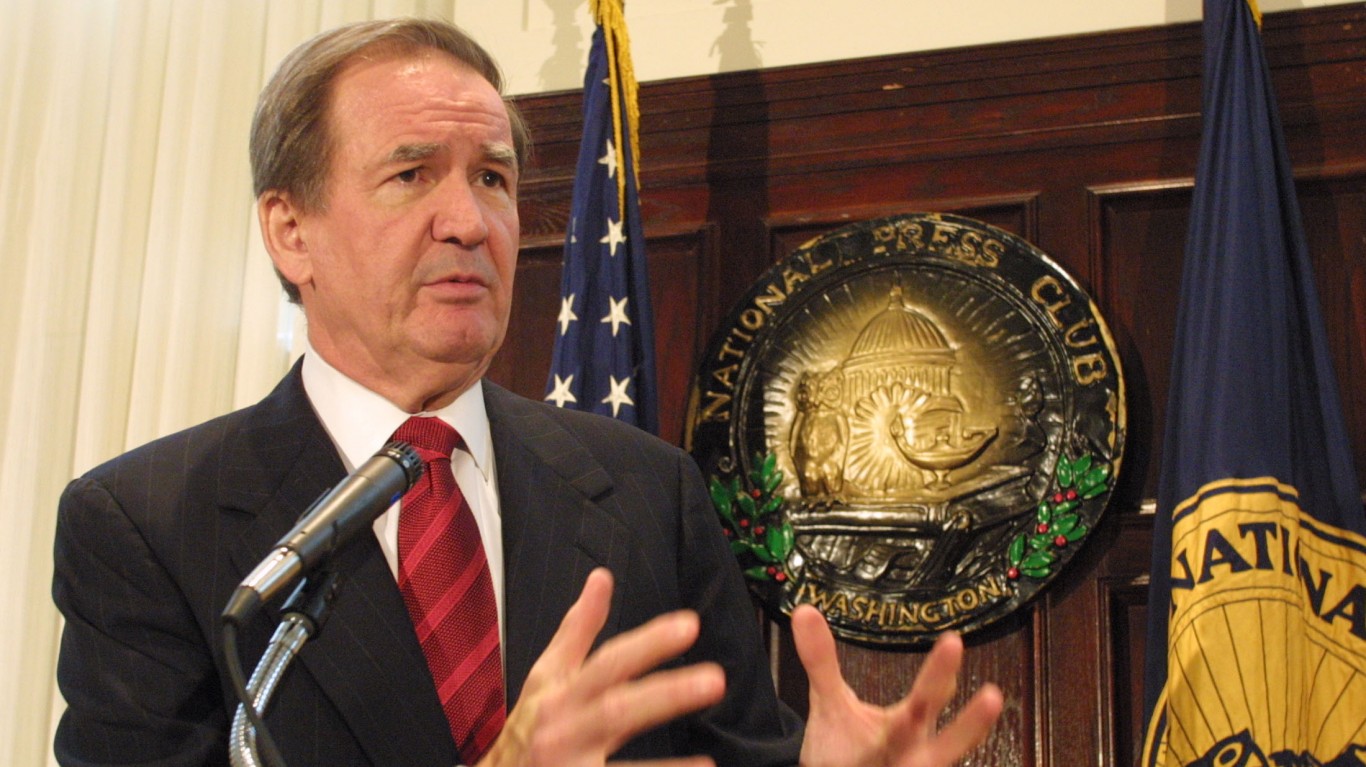
Pat Buchanan
> IA Caucus vote: 23.3%
Pat Buchanan ran for president for the second time in 1996. The Republican candidate, who worked for Richard Nixon, Gerald Ford, and Ronald Reagan when they were presidents, advocated restrictions on free trade, temporary freeze on immigration, and anti-abortion laws. In Iowa, Buchanan finished second, getting 23% of the vote, behind Bob Dole, who won the race with 26% of the vote.
Bob Dole
> IA Caucus vote: 26.3%
Kansas Sen. Bob Dole won the Iowa caucuses, though his moderate Republican candidacy received a strong challenge from the right from Pat Buchanan, who lost by 3 percentage points. Dole won the Republican nomination but was buried in a landslide by President Bill Clinton, who became the first Democrat to be reelected since Franklin Roosevelt in 1936.

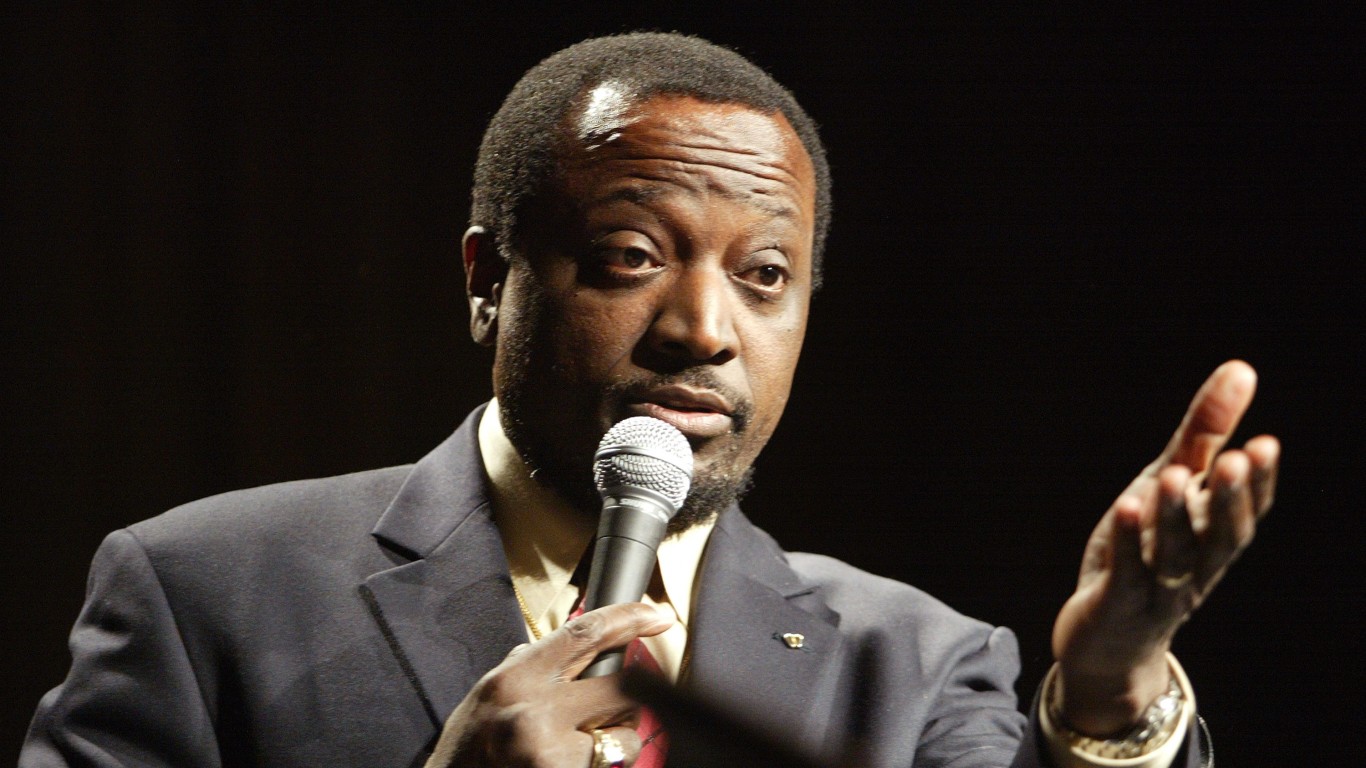
Alan Keyes
> IA Caucus vote: 14.3%
Alan Keyes, an African American conservative commentator, won more than 14% of the vote in the 2000 Iowa caucuses to finish third behind George W. Bush and Steve Forbes. Keyes managed to win just 6% of the vote in the New Hampshire primary, finishing fourth out of five candidates.
[in-text-ad-2]
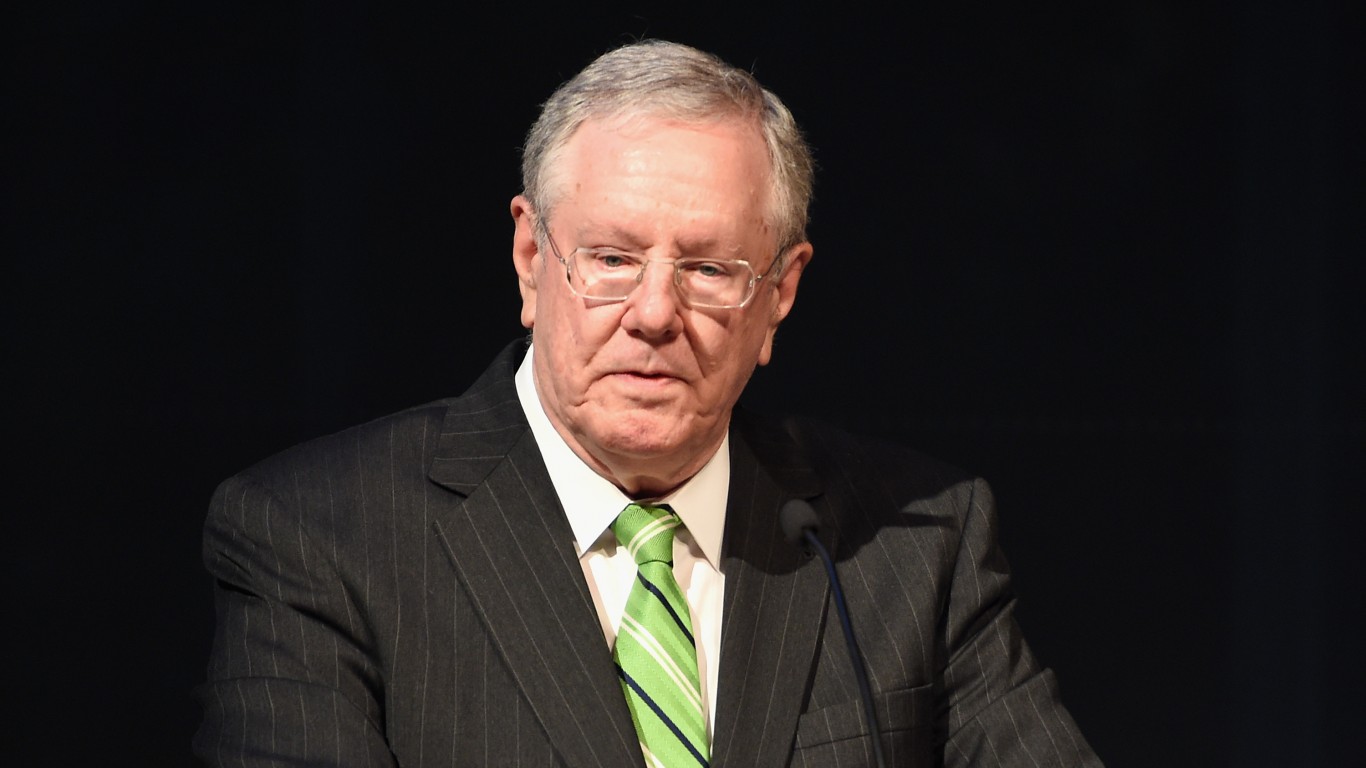
Steve Forbes
> IA Caucus vote: 30.5%
Conservative Repbulican candidate Steve Forbes came in second to Texas Gov. George W. Bush in the Iowa caucuses vote. After a disappointing third-place finish in the Delaware primary in February, however, Forbes, who spent $32 million of his own money in his nomination bid, suspended his campaign.
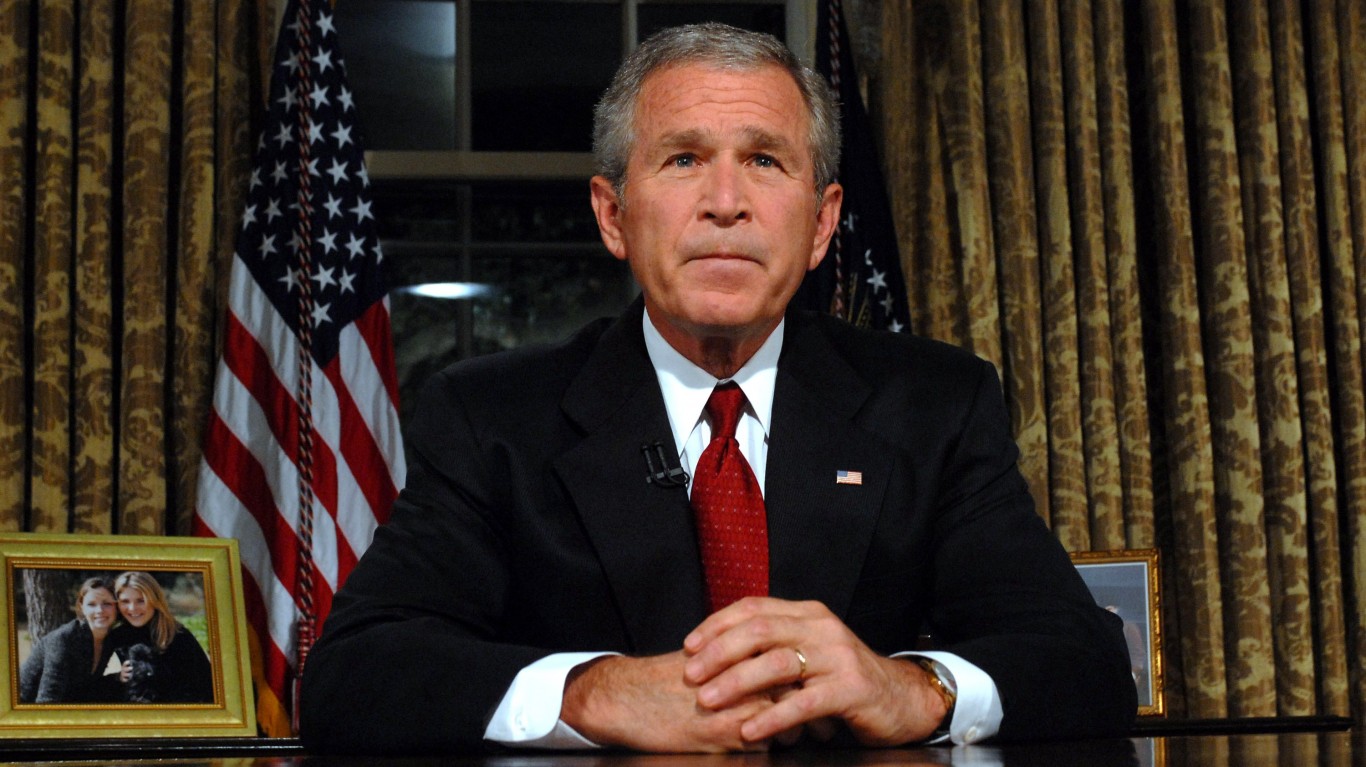
George W. Bush
> IA Caucus vote: 40.0%
Texas Gov. George W. Bush, son of the former president, won the Iowa caucuses over conservative candidate Steve Forbes by about 10 percentage points. Bush would win the Republican nomination and become only the third man to win the presidency after winning a contested Iowa caucus. The others were Jimmy Carter and Barack Obama.

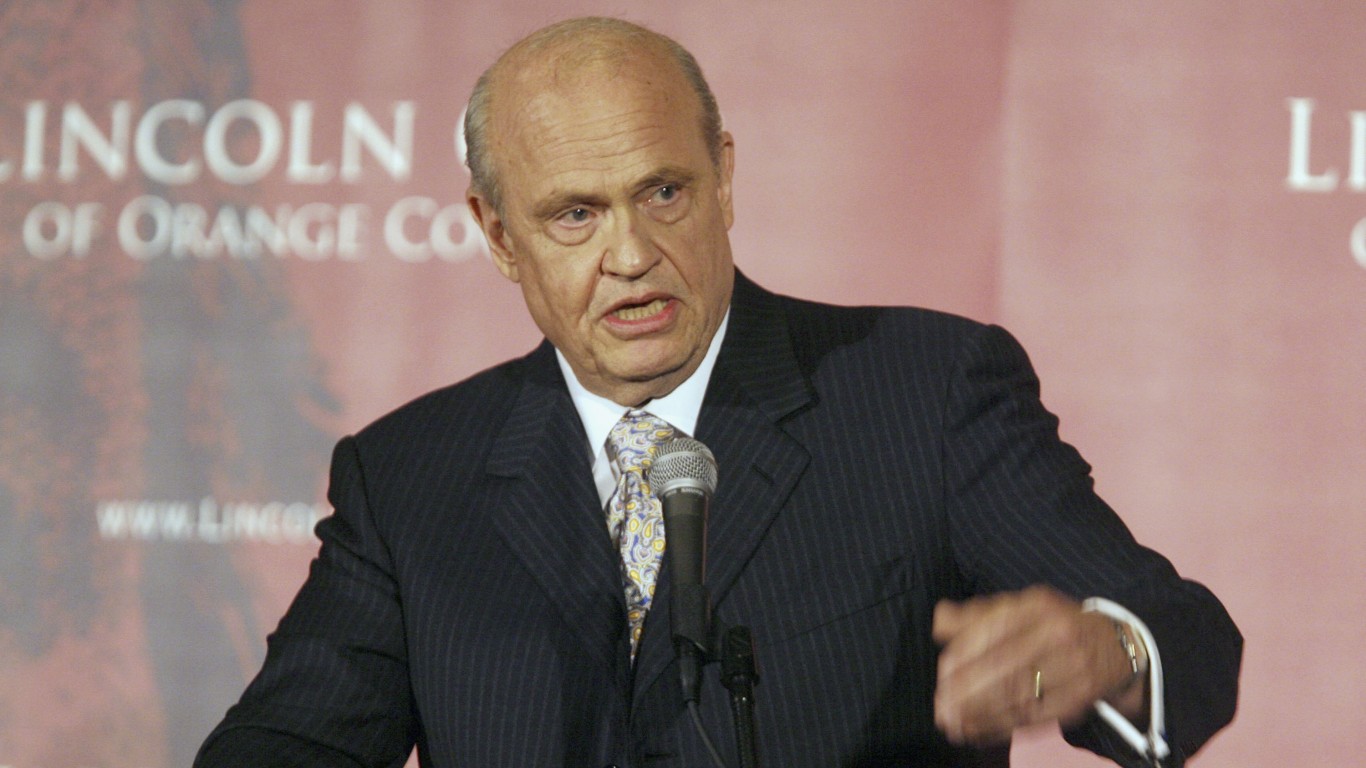
Fred D. Thompson
> IA Caucus vote: 13.0%
Republican Tennessee Sen. Fred D. Thompson, who was also an actor known for his roles in “The Hunt for Red October” and “Law and Order,” was a Republican presidential candidate in 2008. In Iowa, he finished third with just over 13% of the vote, behind Mike Huckabee (34%) and Mitt Romney (25%). Thomson’s campaign was plagued by blunders, including confusing Russia with the Soviet Union.
[in-text-ad]
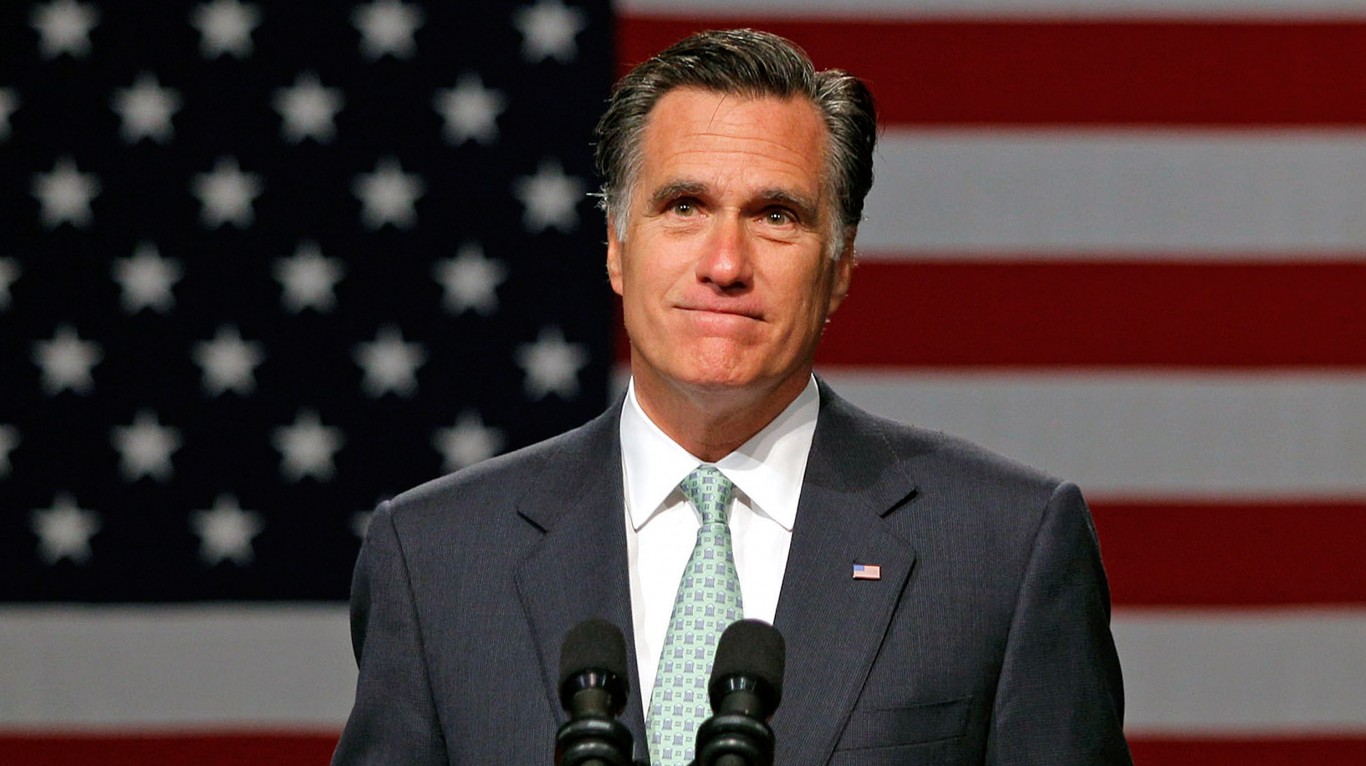
Mitt Romney
> IA Caucus vote: 25.2%
Former governor of Massachusetts Mitt Romney ended up second in the Iowa caucuses vote in 2008, winning a little more than 25% of the vote, about 10 percentage points less than winner Mike Huckabee, the former governor of Arkansas. The then senator from Arizona John McCain would eventually win the Republican nomination for president but lose the presidential elections to Barack Obama.
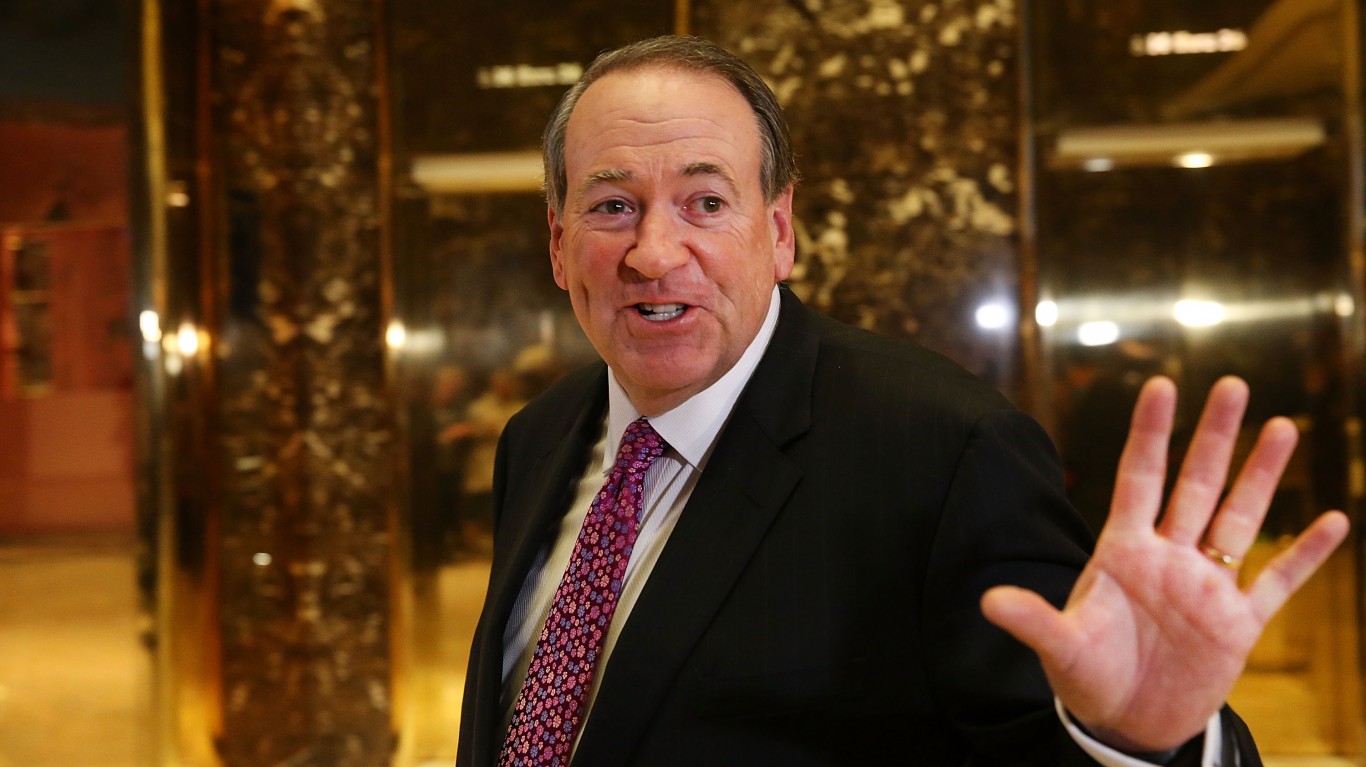
Mike Huckabee
> IA Caucus vote: 34.4%
Former governor of Arkansas Mike Huckabee won the Iowa caucuses with more than 34% of the vote, decisively topping former governor of Massachusetts Mitt Romney. However, he tumbled to third behind John McCain and Mitt Romney in New Hampshire. He regained his footing by winning primaries in southern states on Super Tuesday, but he ended his campaign in March when it became clear McCain was going to win the nomination.

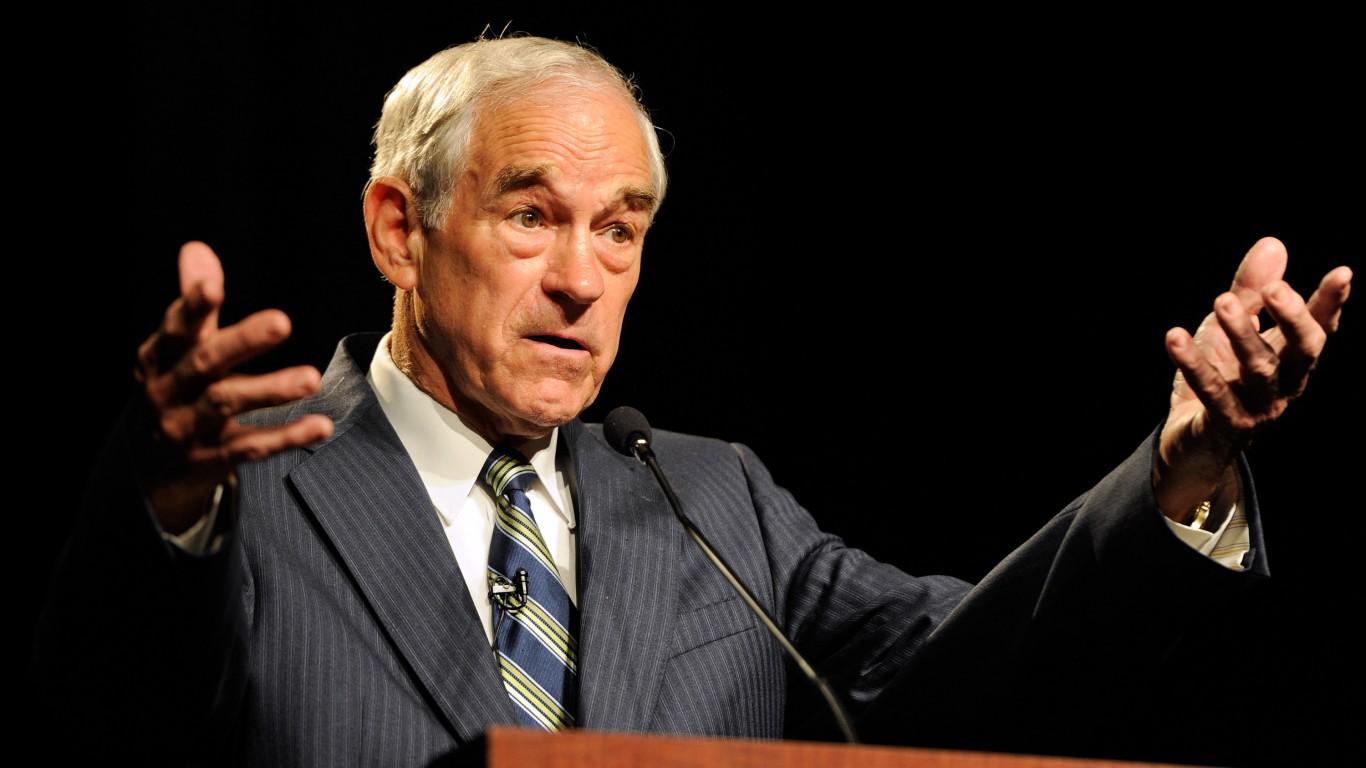
Ron Paul
> IA Caucus vote: 21.4%
Texas Rep. Ron Paul sought the presidency three times, the first time in 1988 as the Libertarian Party candidate. In 2012, Paul finished third in Iowa with 21% of the vote, right behind Mitt Romney, the eventual nominee, and Rick Santorum.
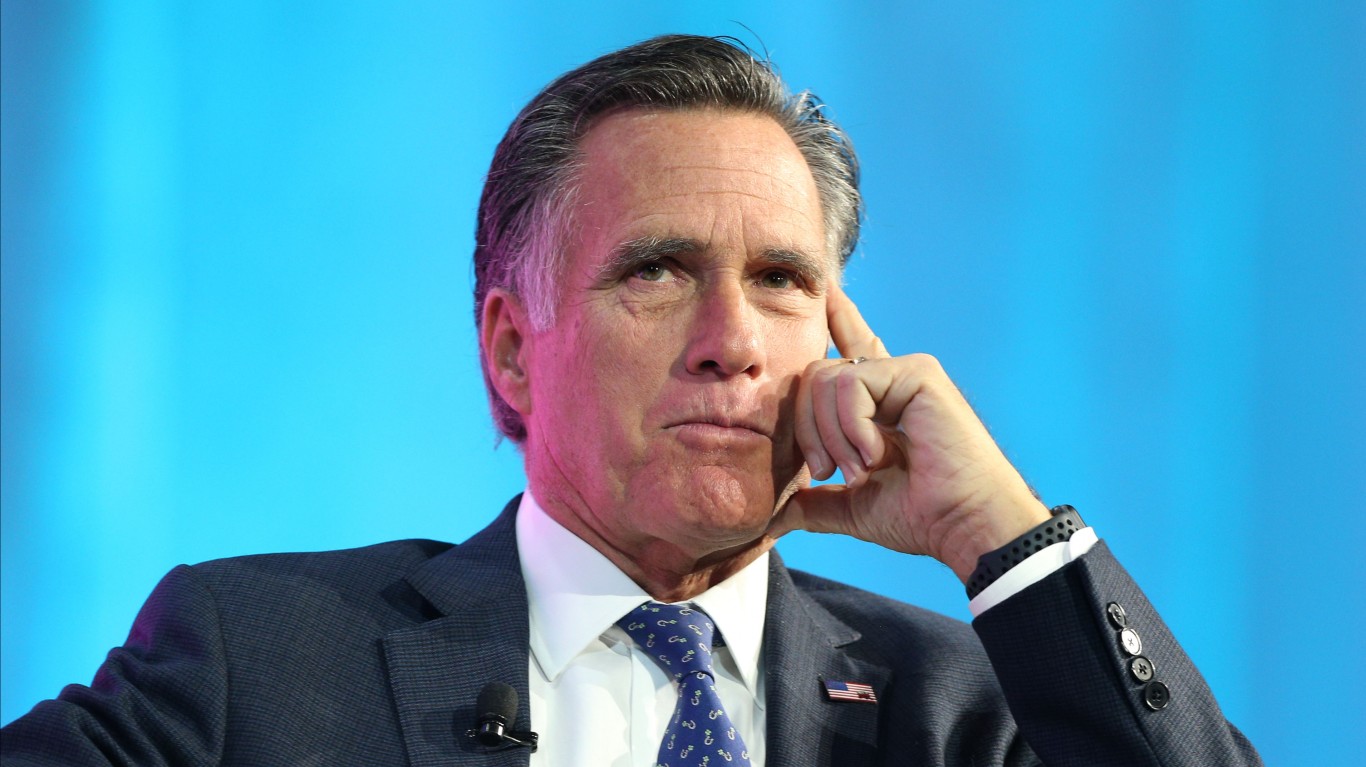
Mitt Romney
> IA Caucus vote: 24.5%
Mitt Romney ran for president for a second time in 2012. Once again he lost in Iowa, but this time only by 34 votes to Rick Santorum, a former senator from Pennsylvania. Romney would eventually win the Republican nomination but lose to incumbent President Barack Obama in the general elections.
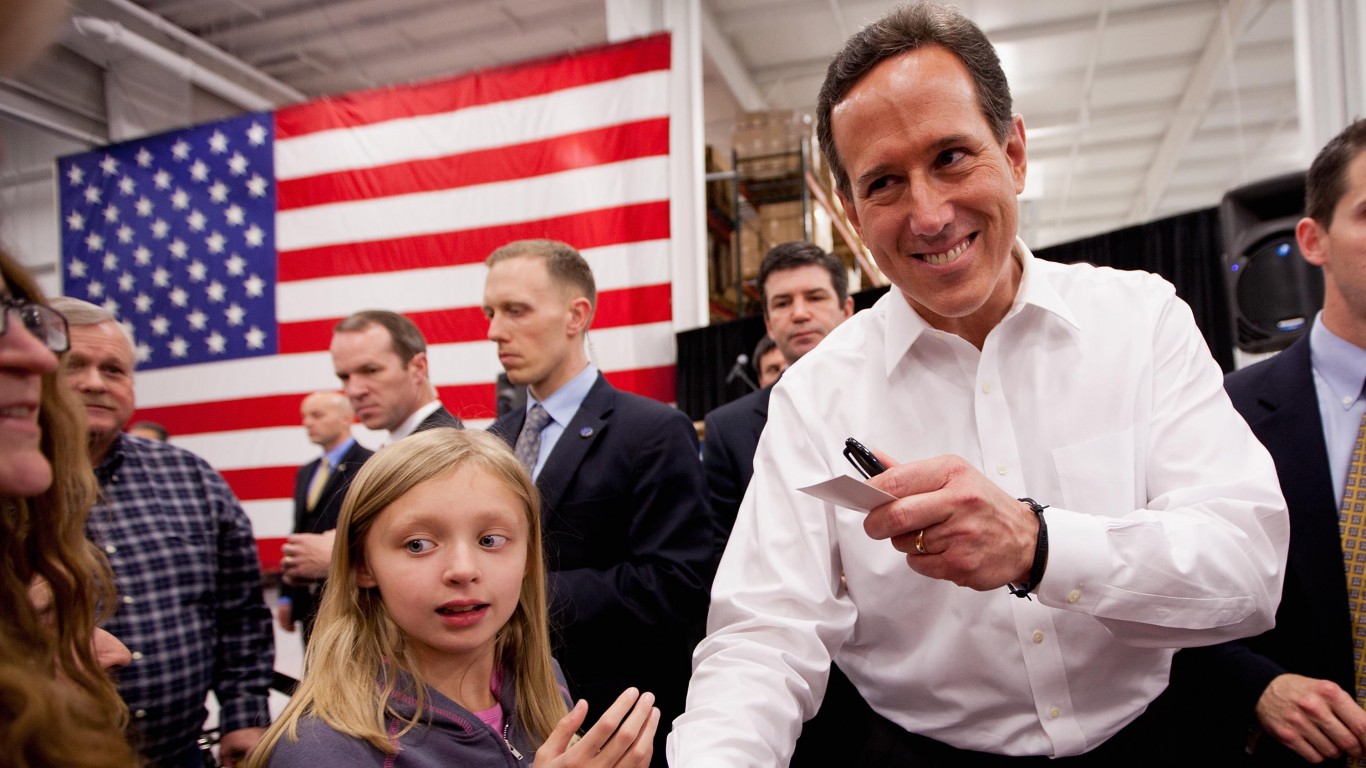
Rick Santorum
> IA Caucus vote: 24.6%
Former senator from Pennsylvania Rick Santorum won a razor-thin victory over Mitt Romney in the 2012 Iowa caucuses. However, Santorum, described as a working-class conservative, could not maintain the momentum, losing primaries in large states. He ended his campaign in early April, just before the Pennsylvania primary, in a decision that was influenced by health issues of one of his daughters.
[in-text-ad-2]

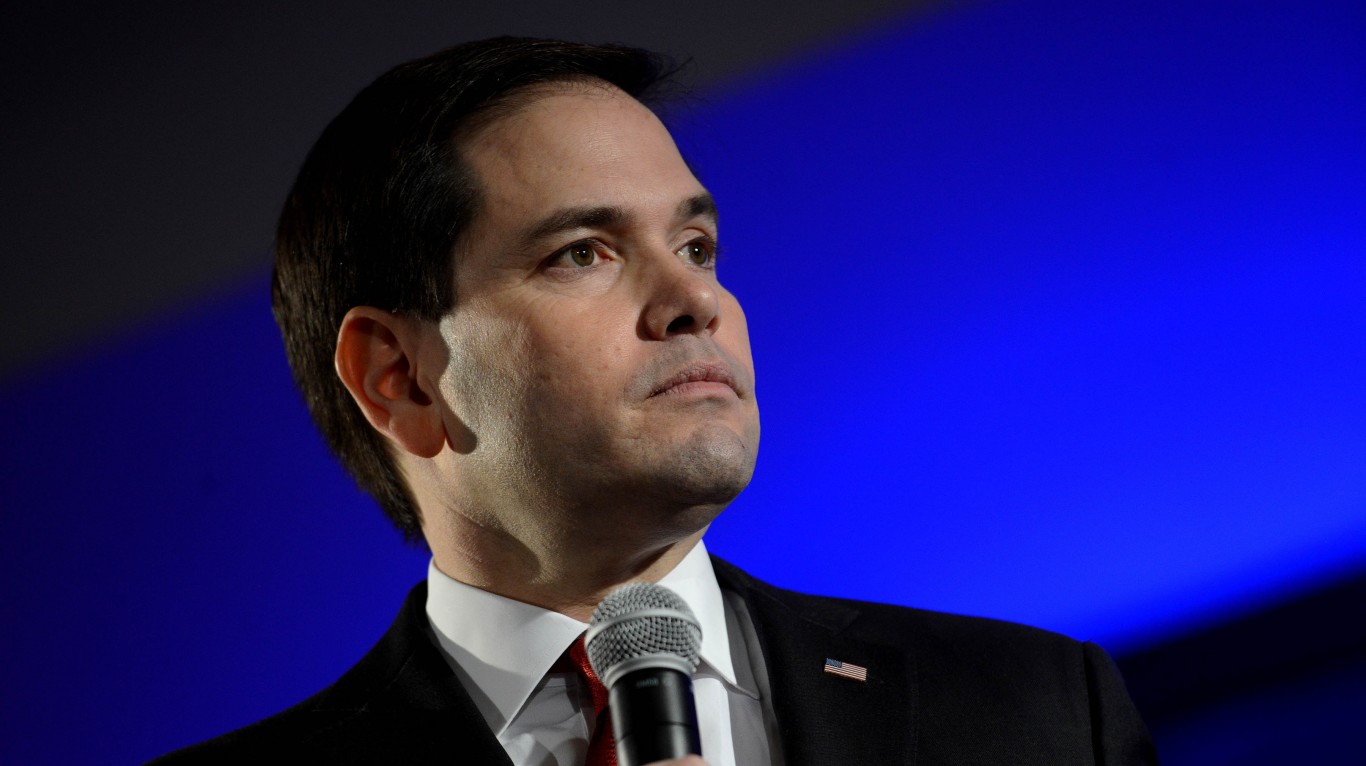
Marco Rubio
> IA Caucus vote: 21.0%
Florida Sen. Marc Rubio ran for the Republican presidential nomination in 2016 and appealed to millennials and other young voters. He finished third in the Iowa race with 23% of the delegates, behind Ted Cruz (28%) and Donald Trump (24%). Rubio eventually suspended his presidential campaign after losing the Florida primary.
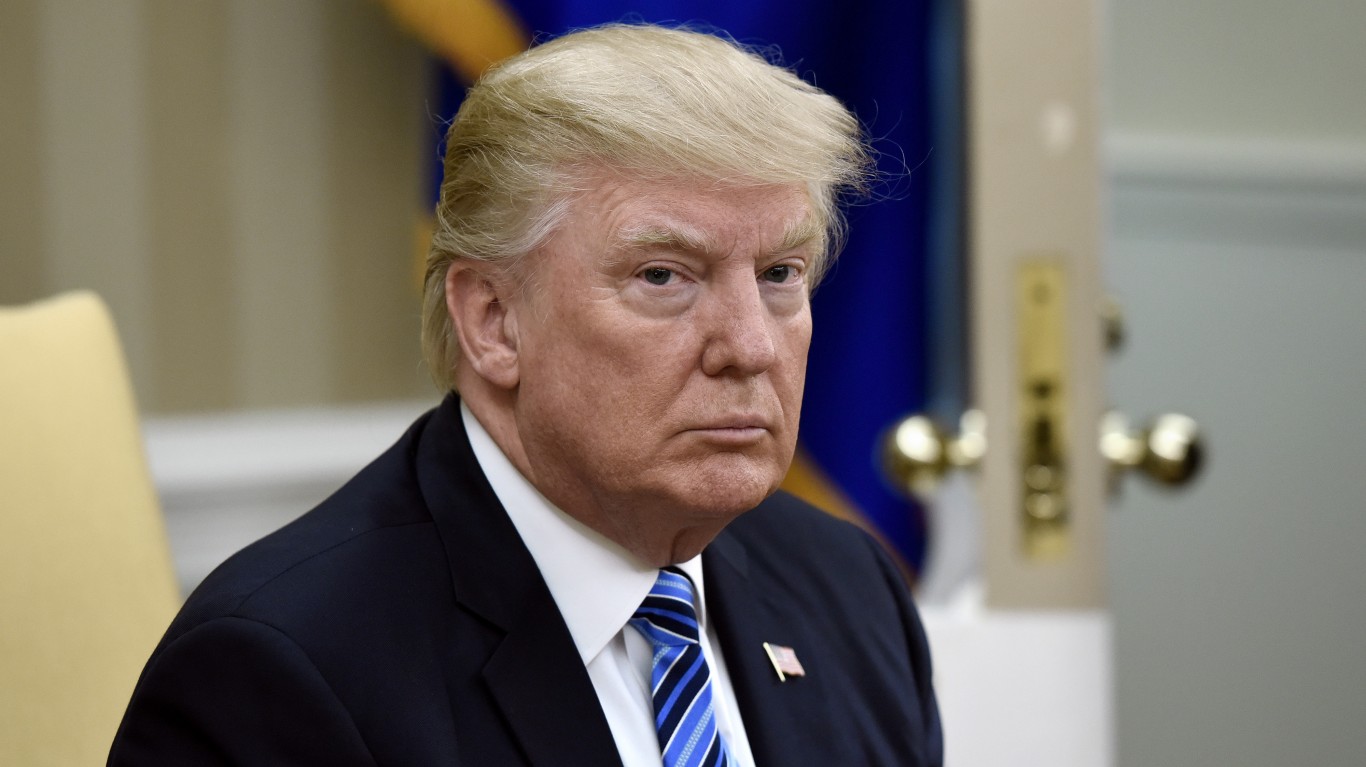
Donald Trump
> IA Caucus vote: 24.3%
Real estate developer and reality television show host Donald Trump finished second in the Iowa caucuses with 24.3% of the vote, behind Texas Sen. Ted Cruz who won 27.6% of the vote. Trump then easily won the New Hampshire primary and built momentum by winning the South Carolina and Nevada contests in rapid succession. Trump won the Republican nomination and stunned political pundits by defeating Hillary Clinton in the 2016 election.

Ted Cruz
> IA Caucus vote: 27.6%
Florida Sen. Ted Cruz, who gained notoriety as the Tea Party darling after a surprising victory for the Senate seat in 2012, won the Iowa caucuses in 2016. He beat Donald Trump and Marco Rubio by 3 and 6 percentage points, respectively, in the first-in-the-nation contest. He won by positioning himself as the most conservative candidate in the field.
Thank you for reading! Have some feedback for us?
Contact the 24/7 Wall St. editorial team.